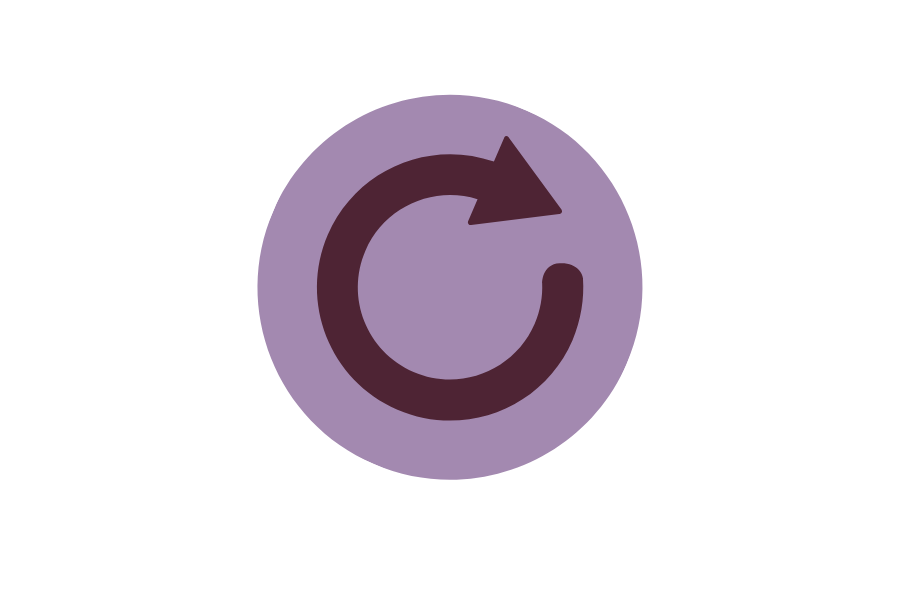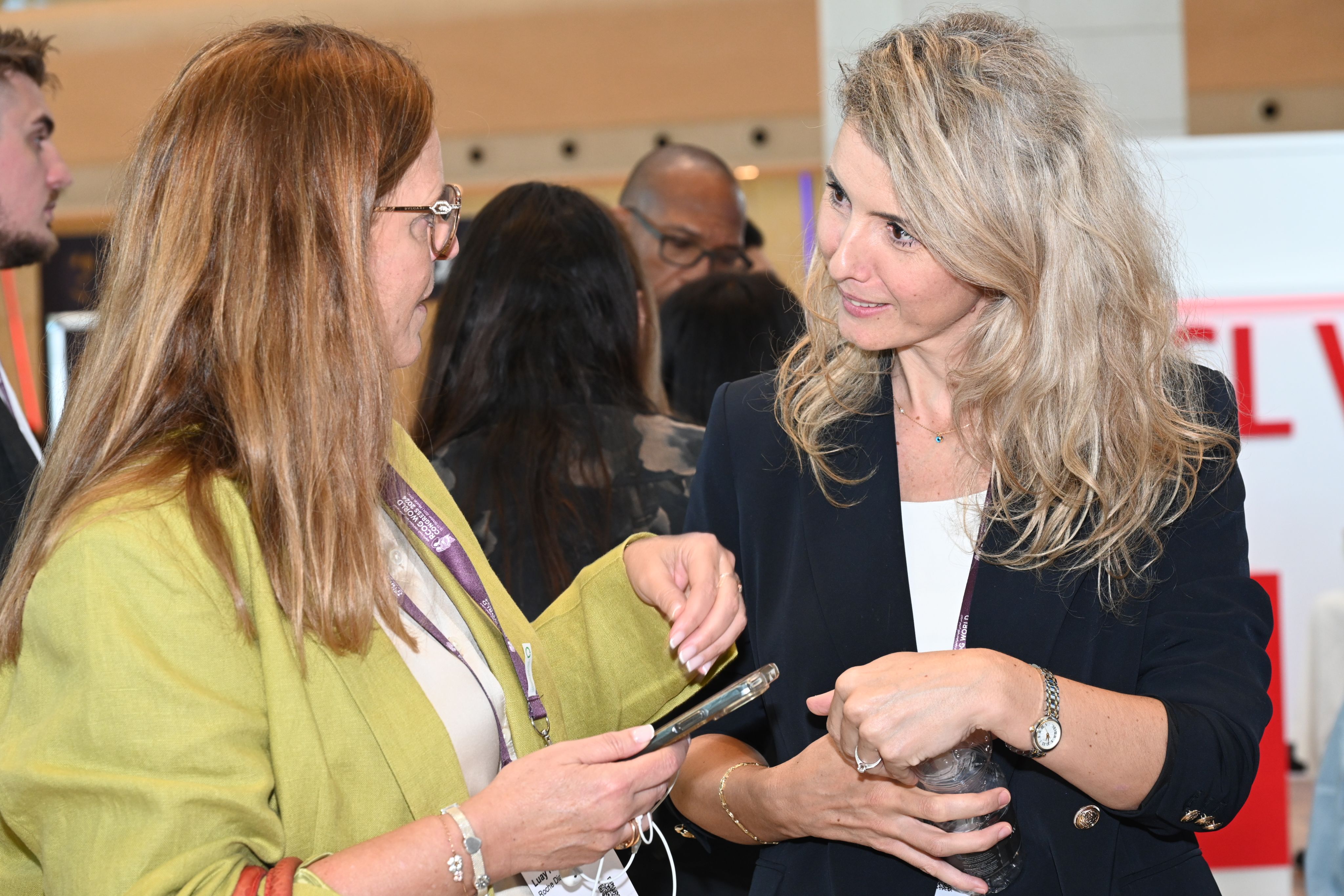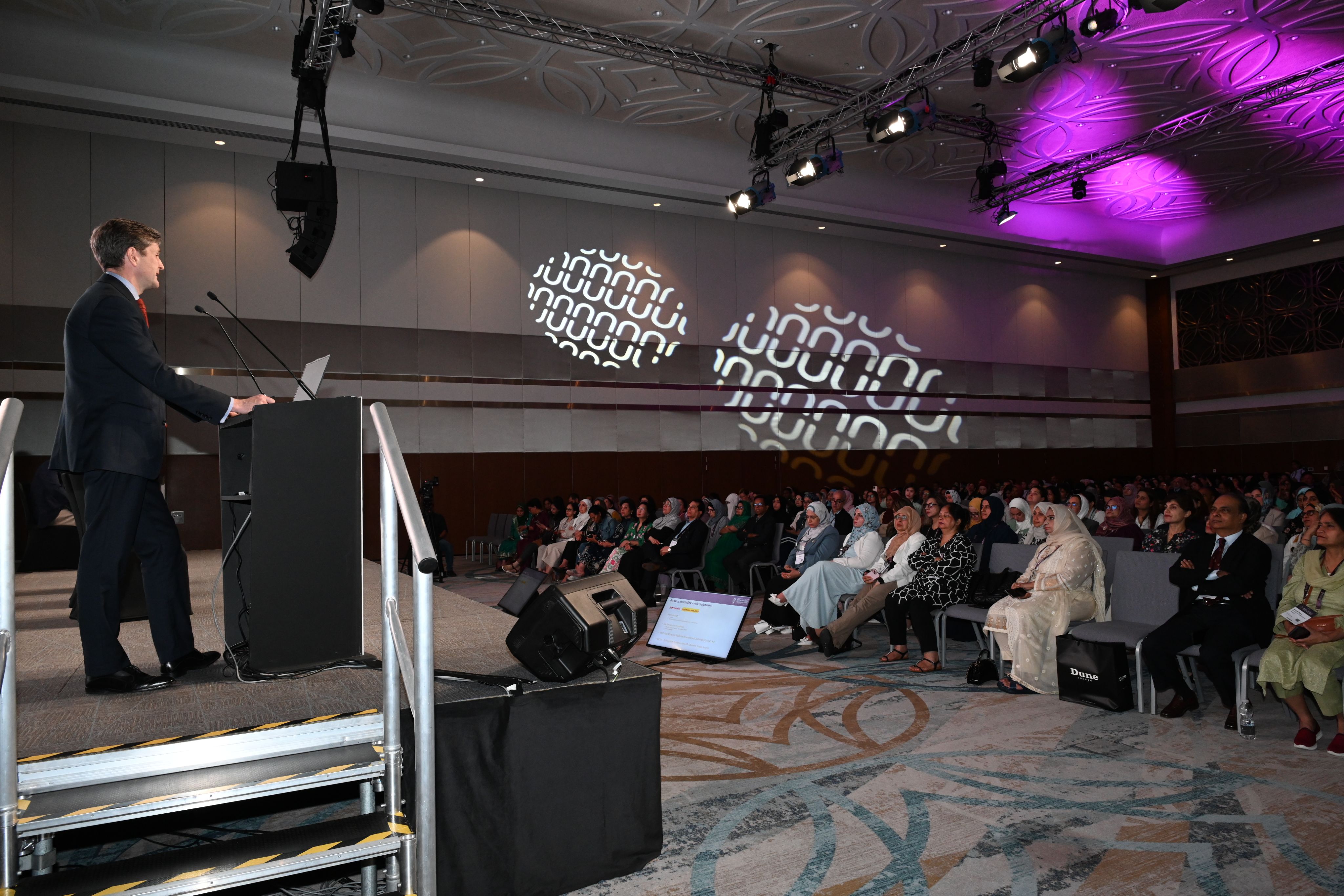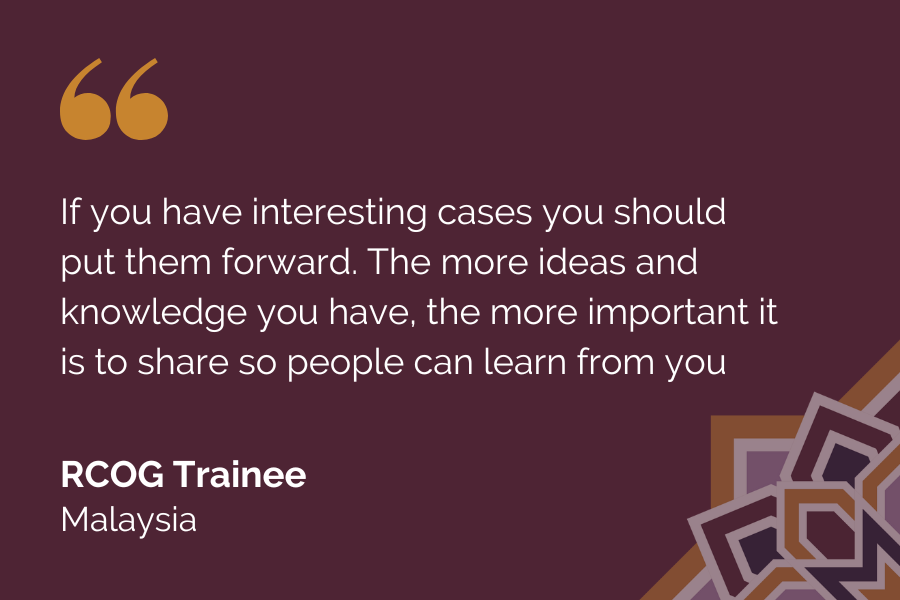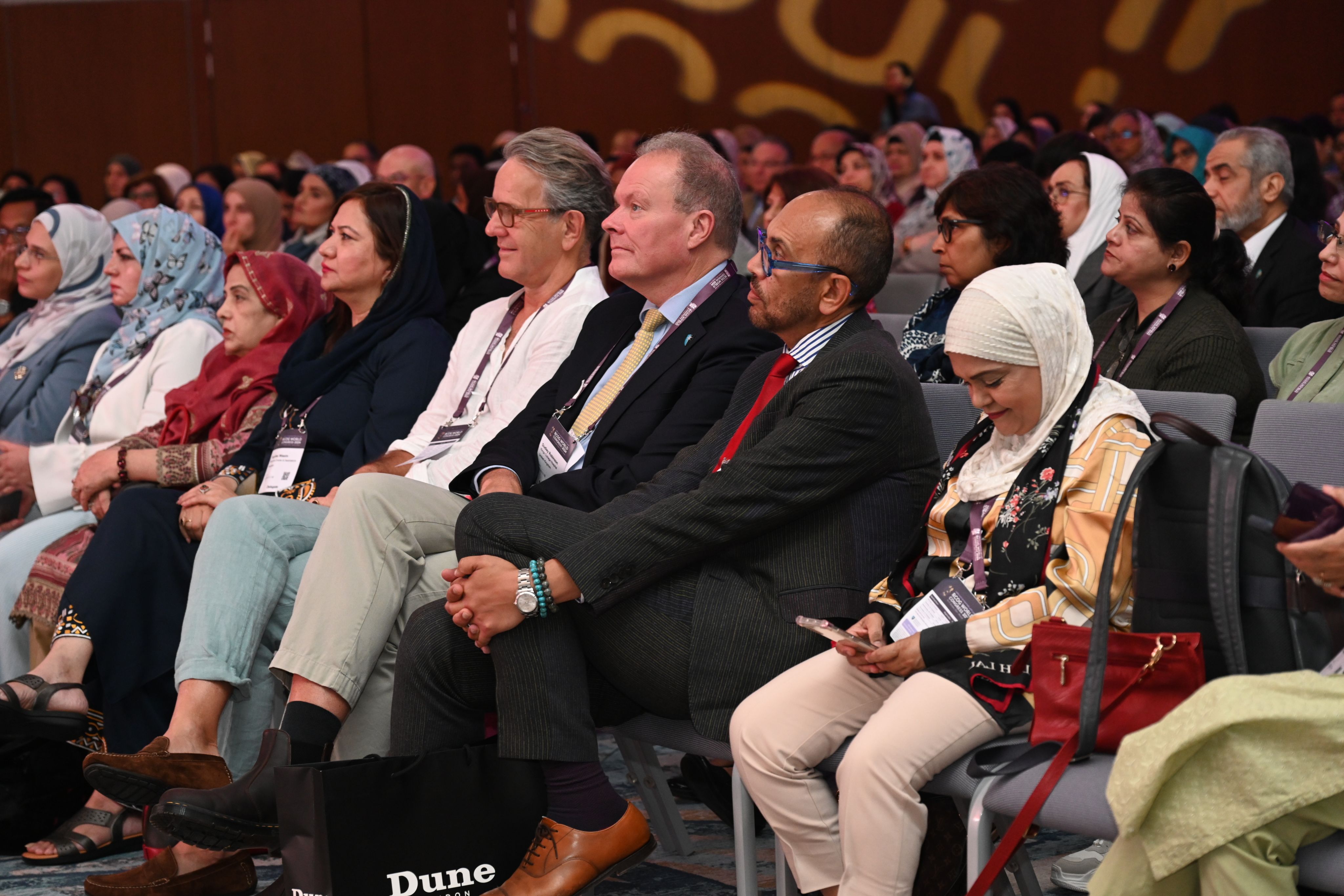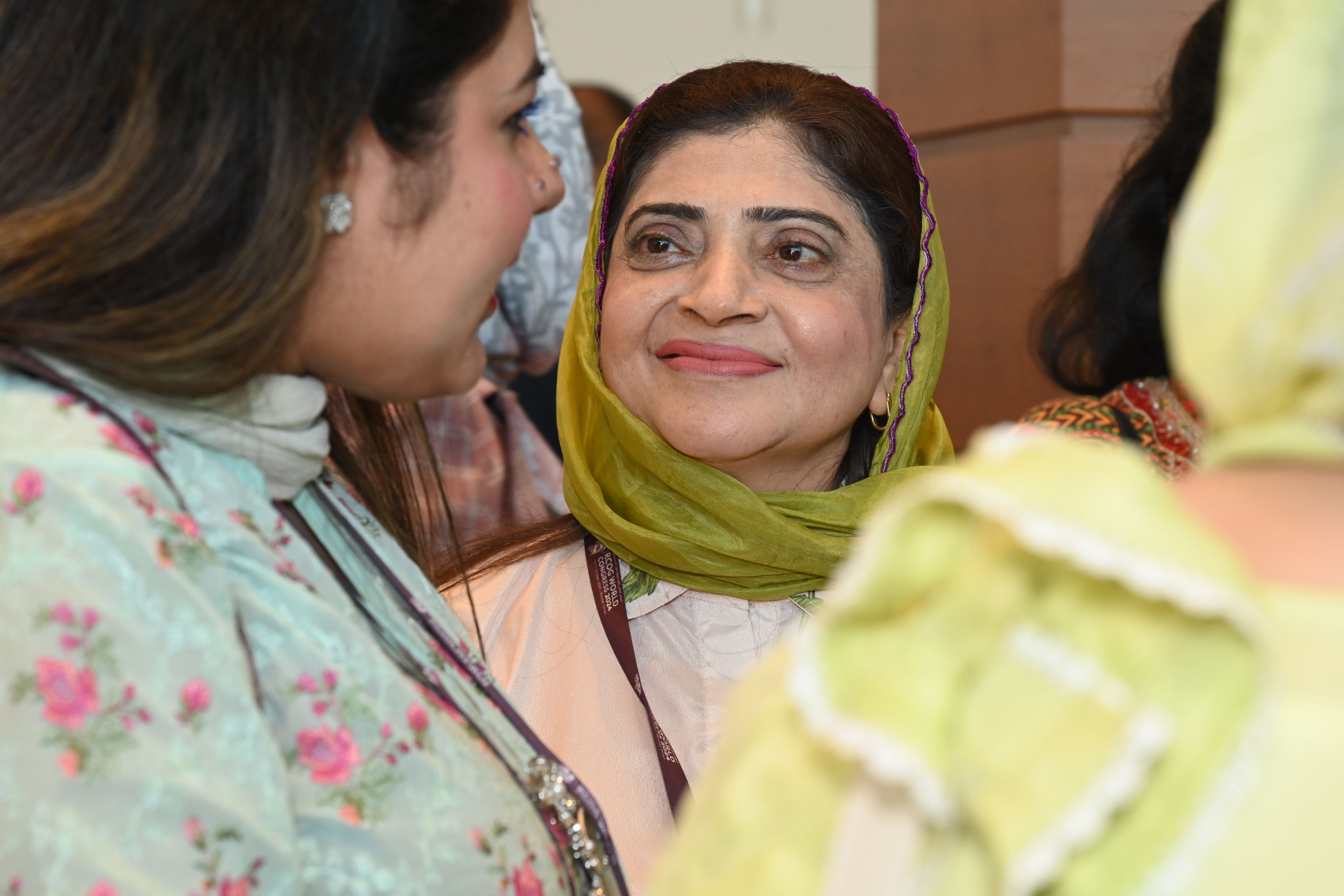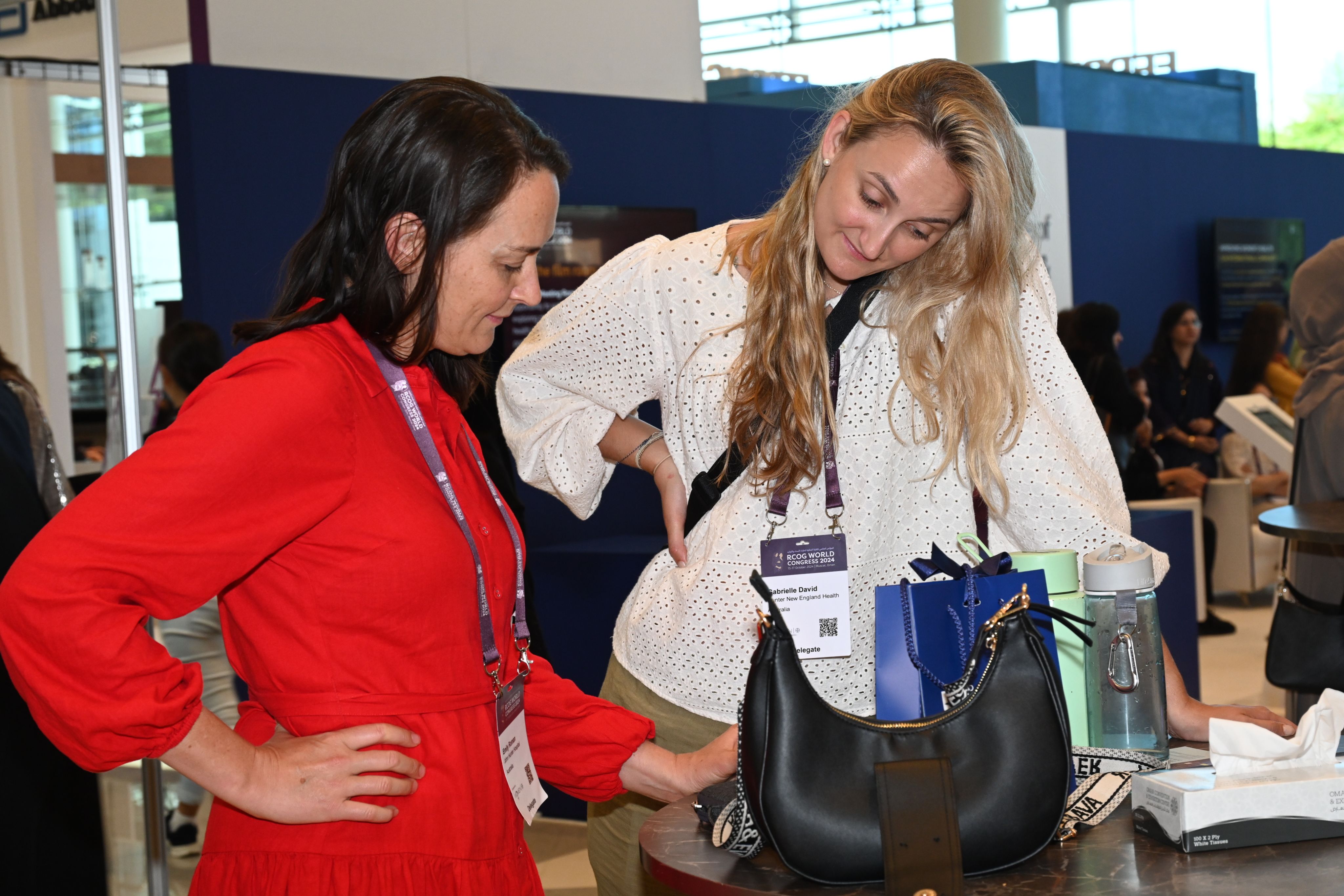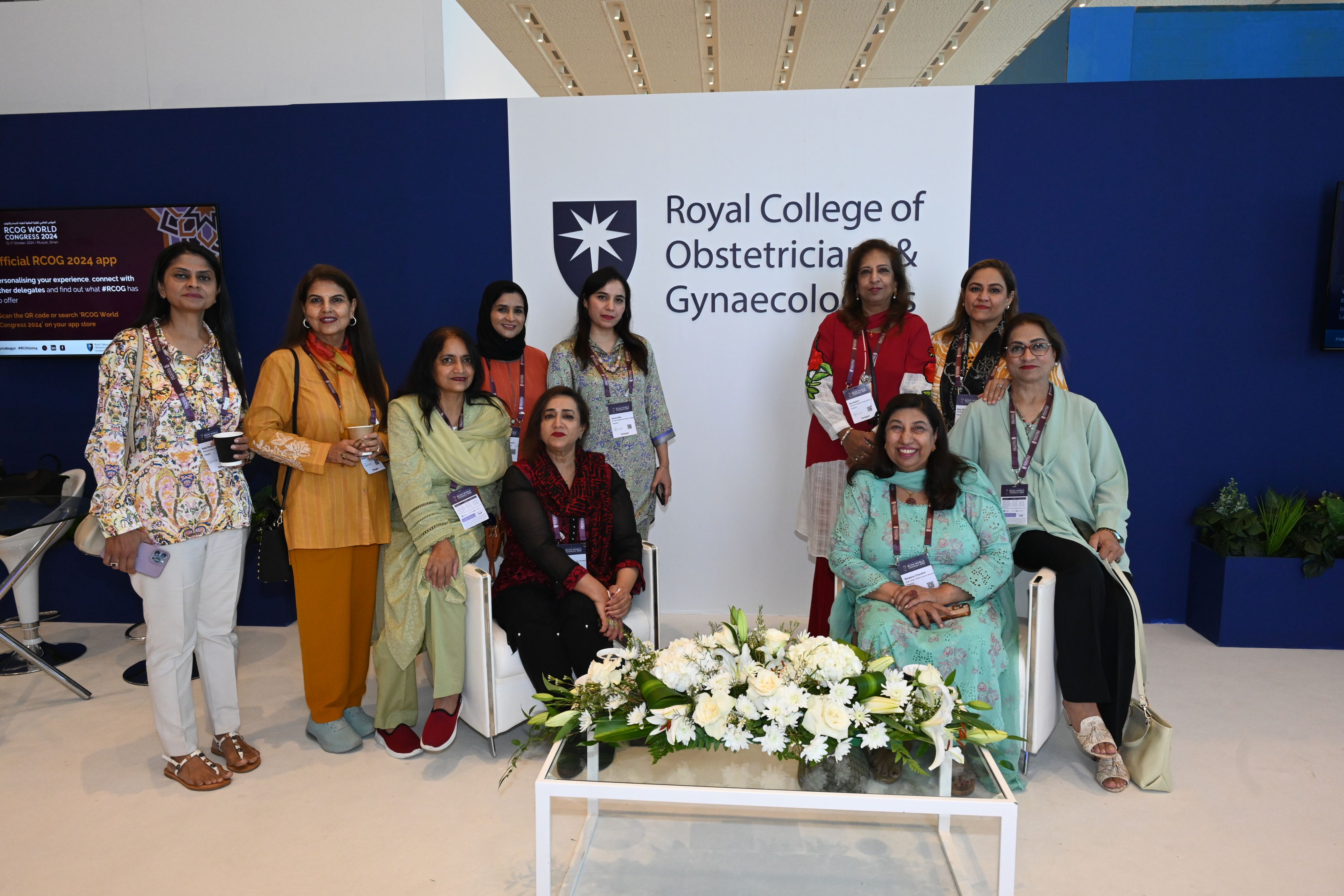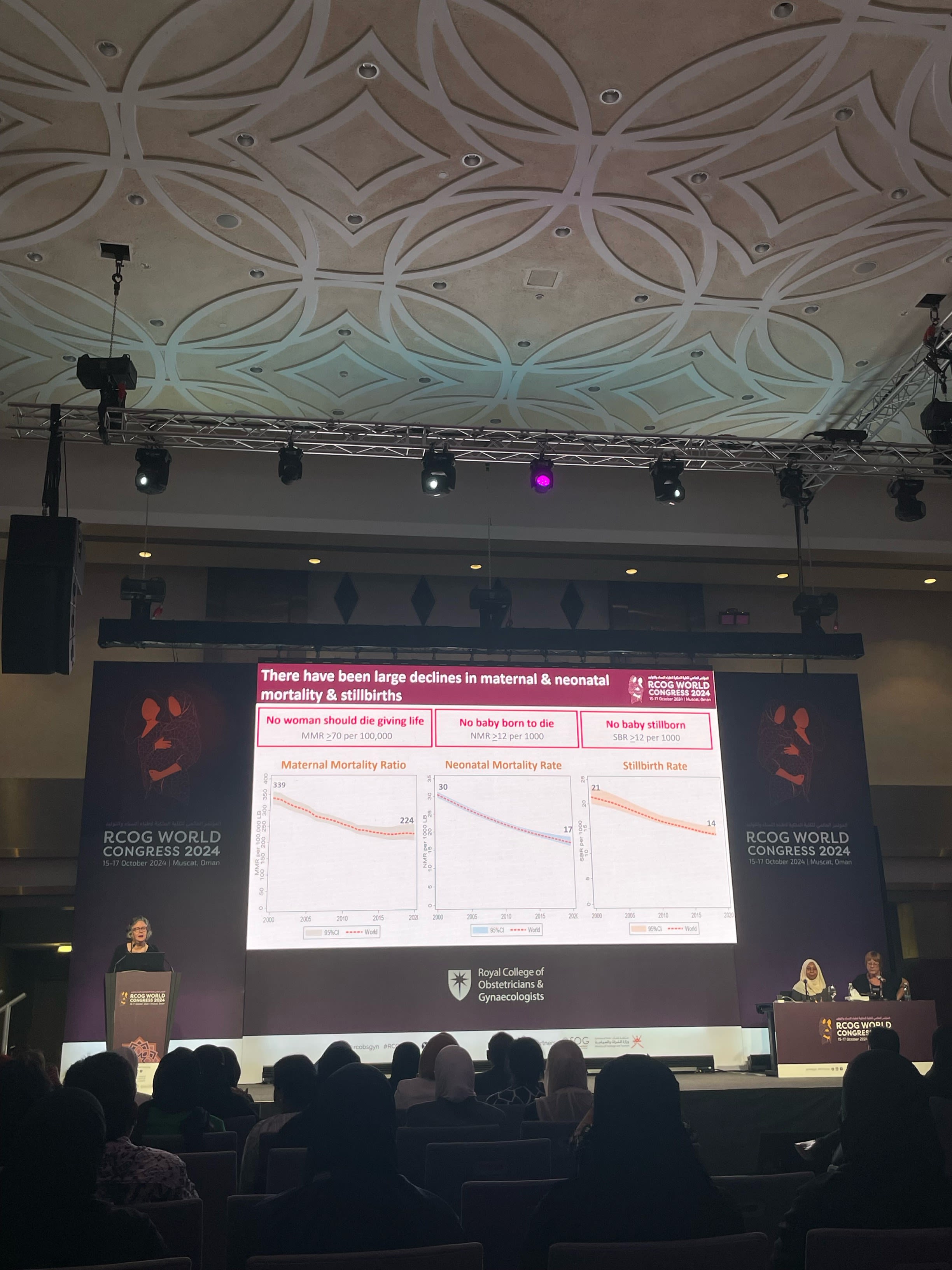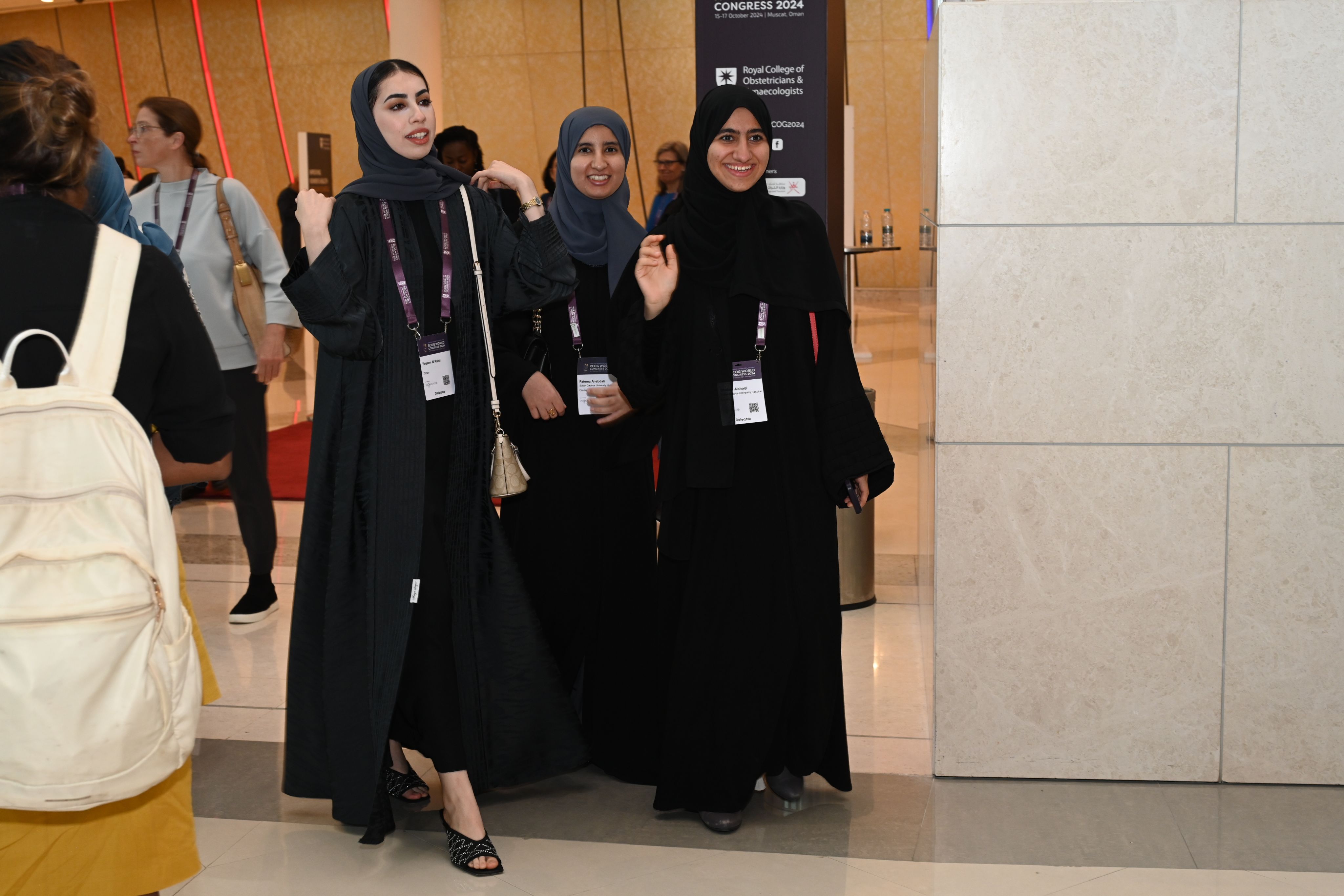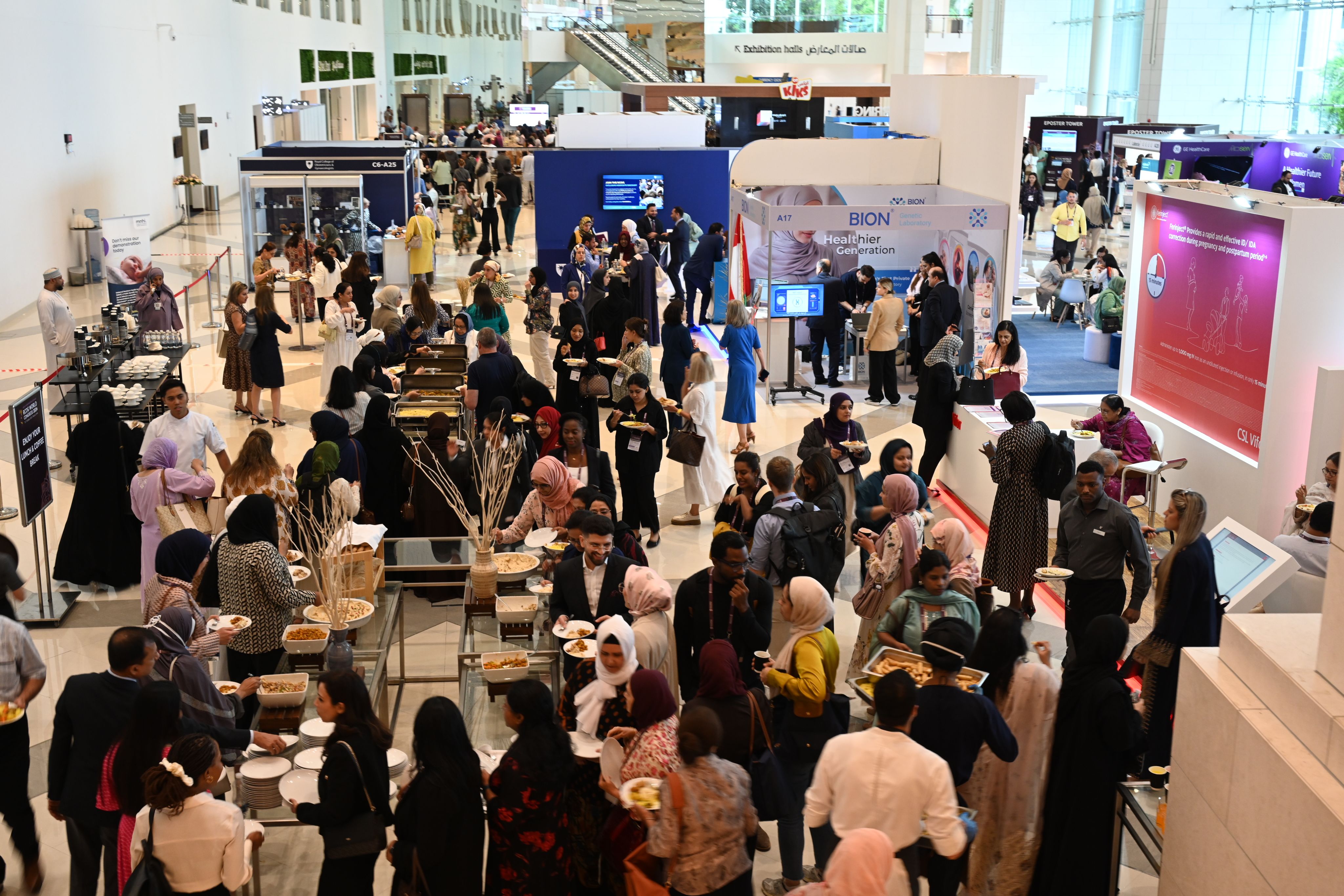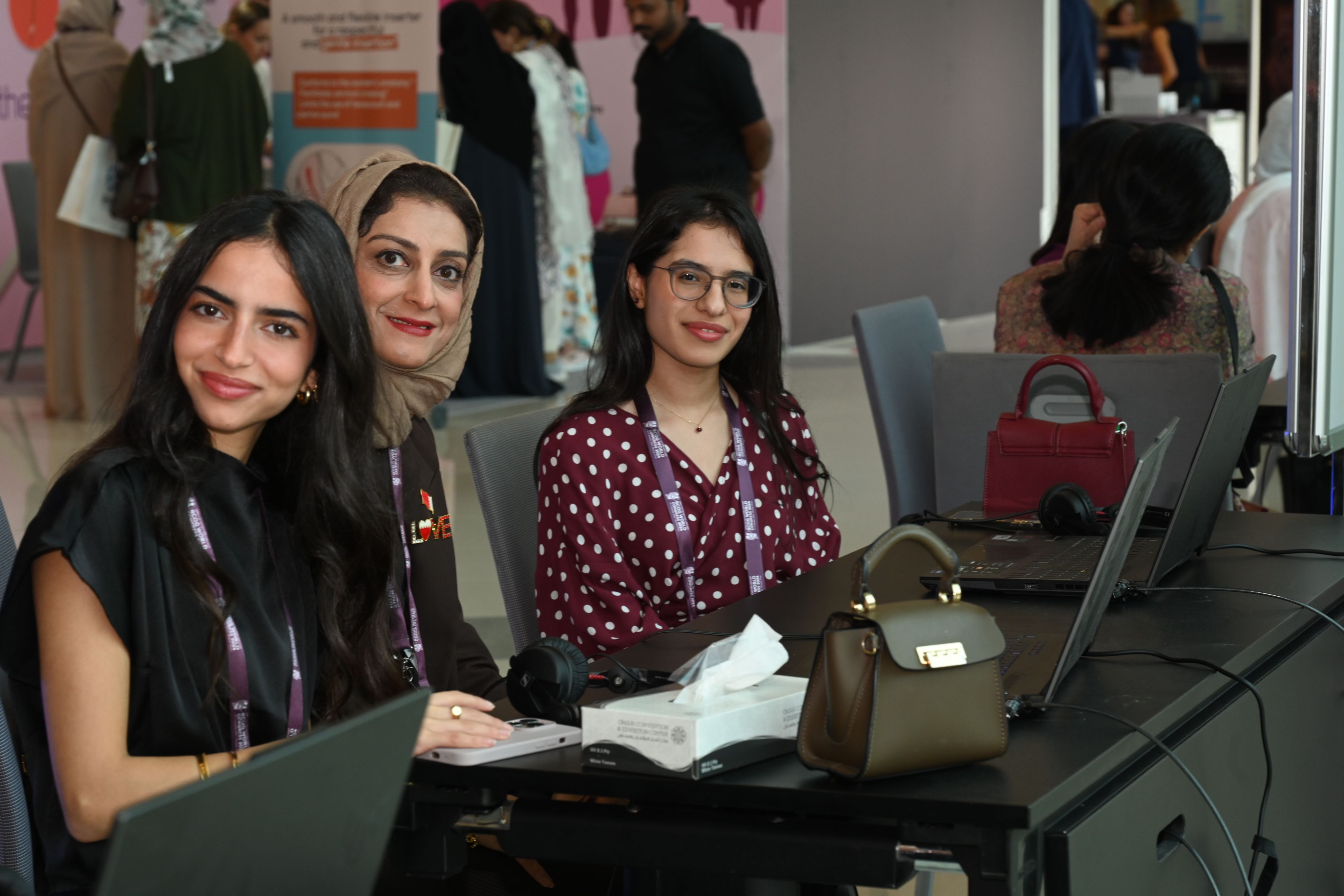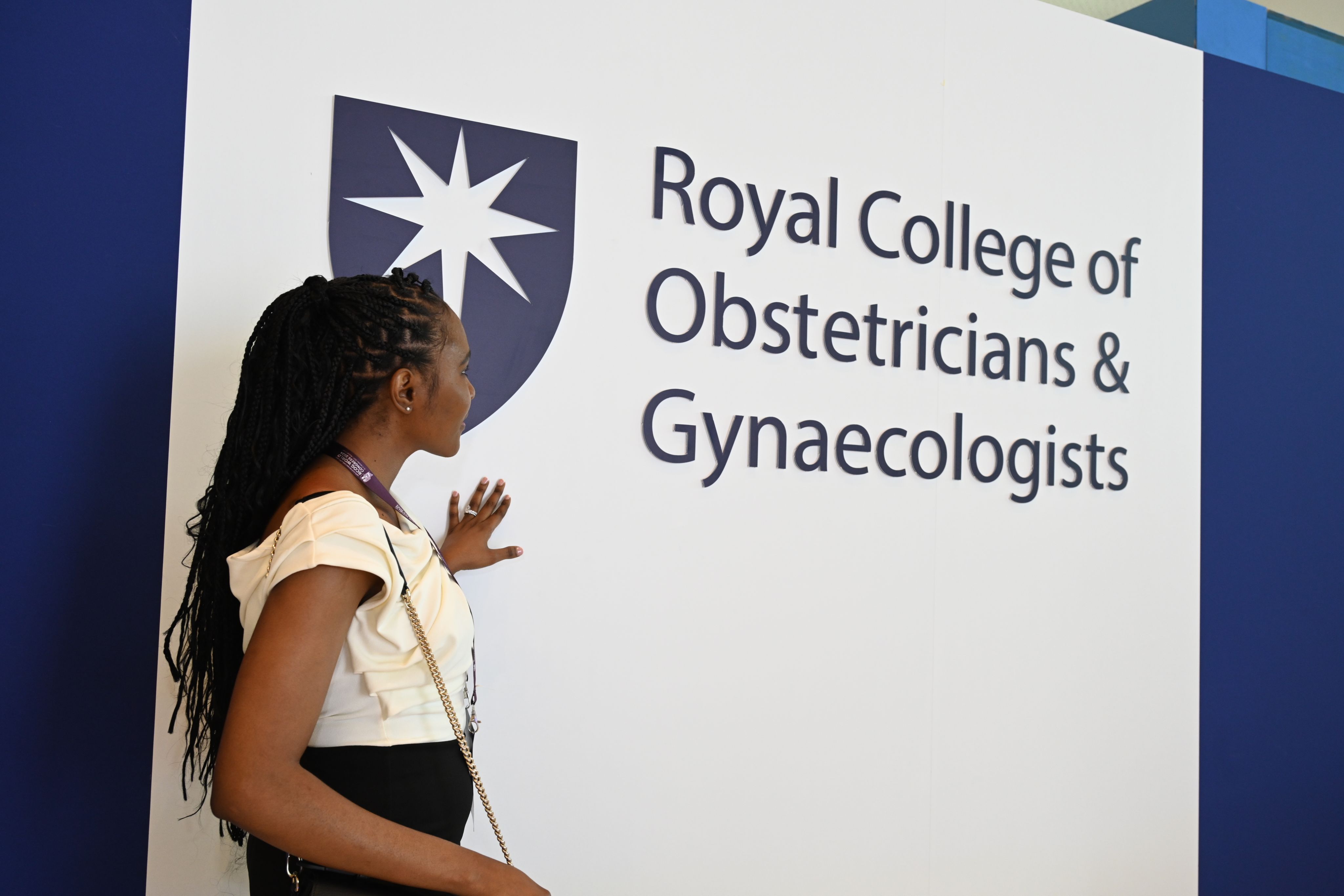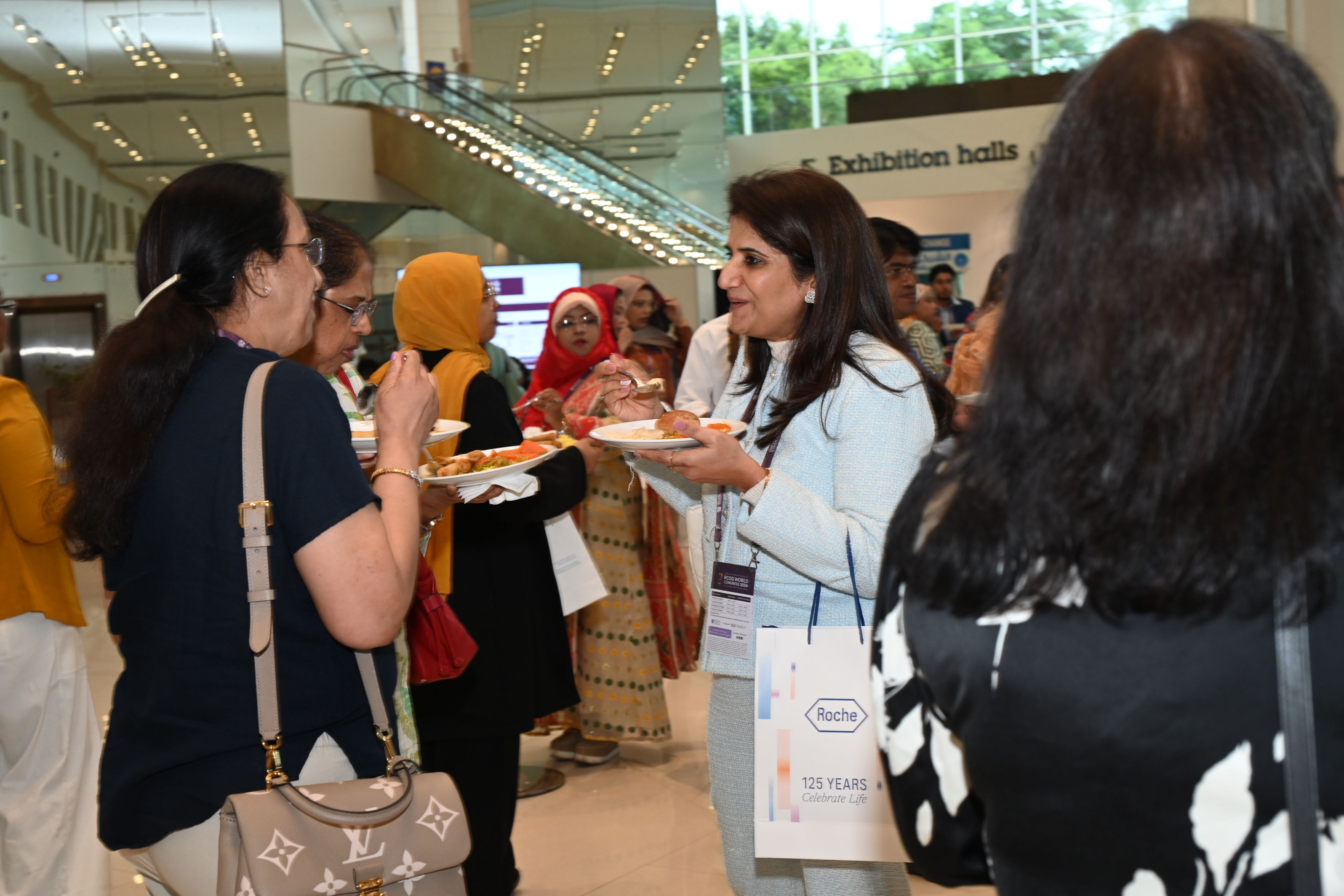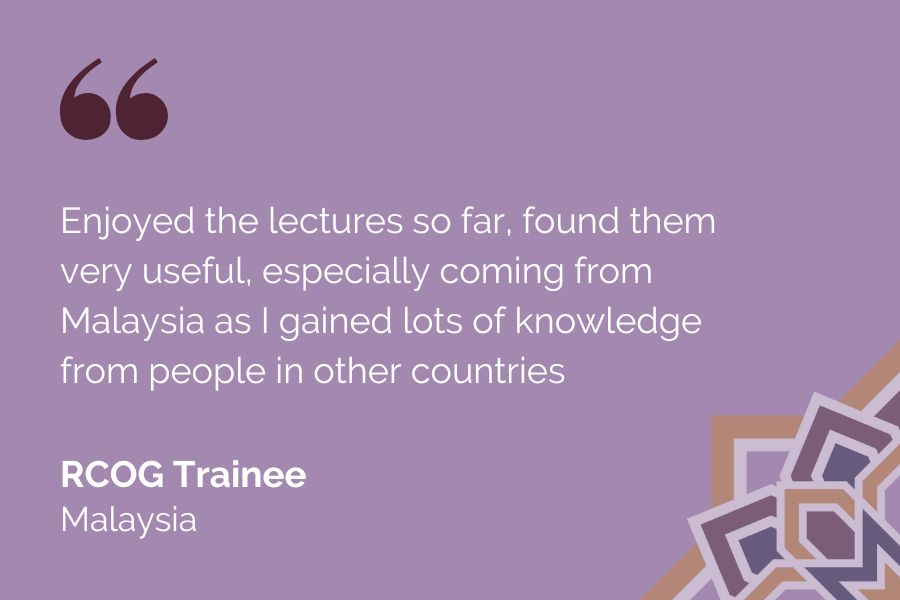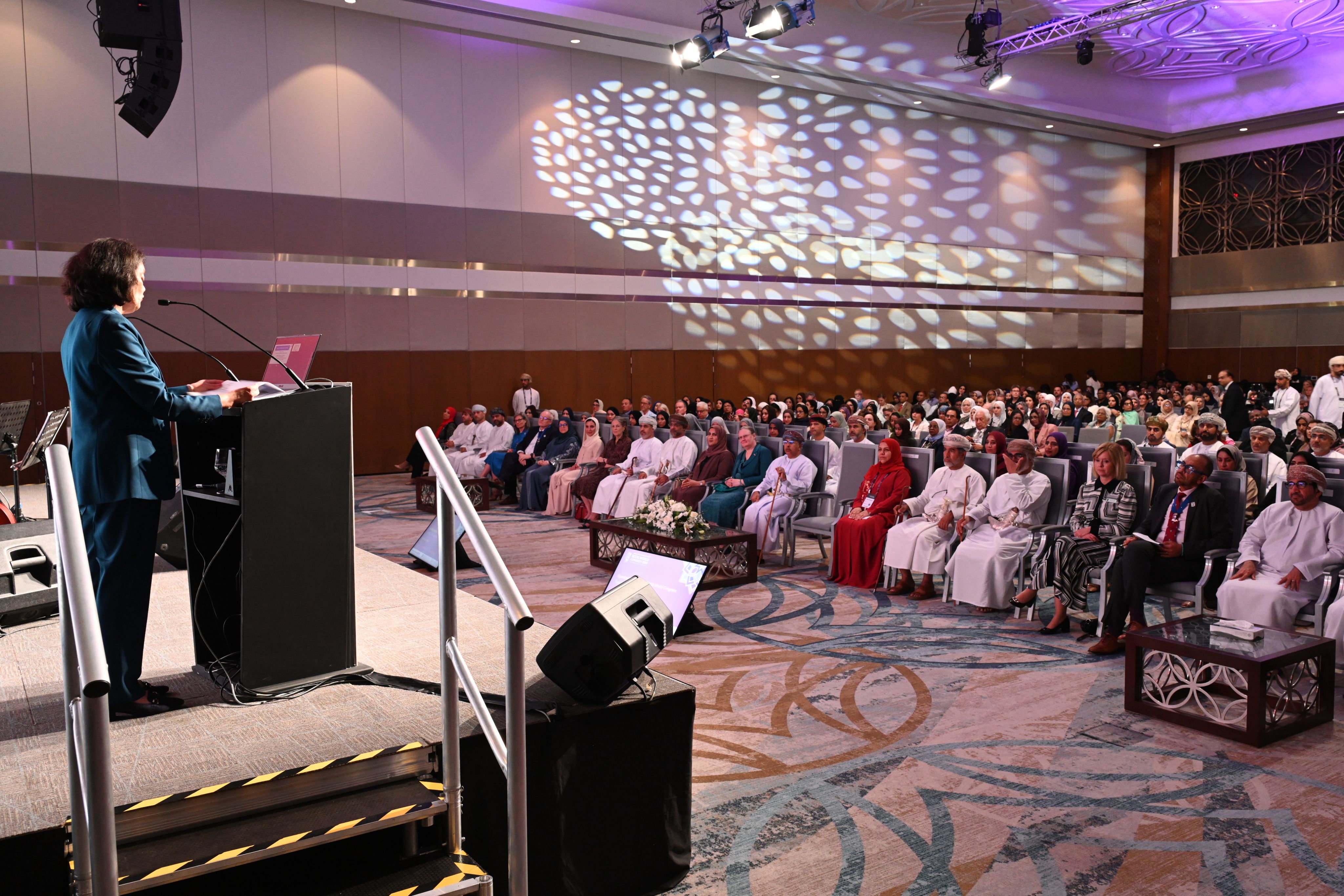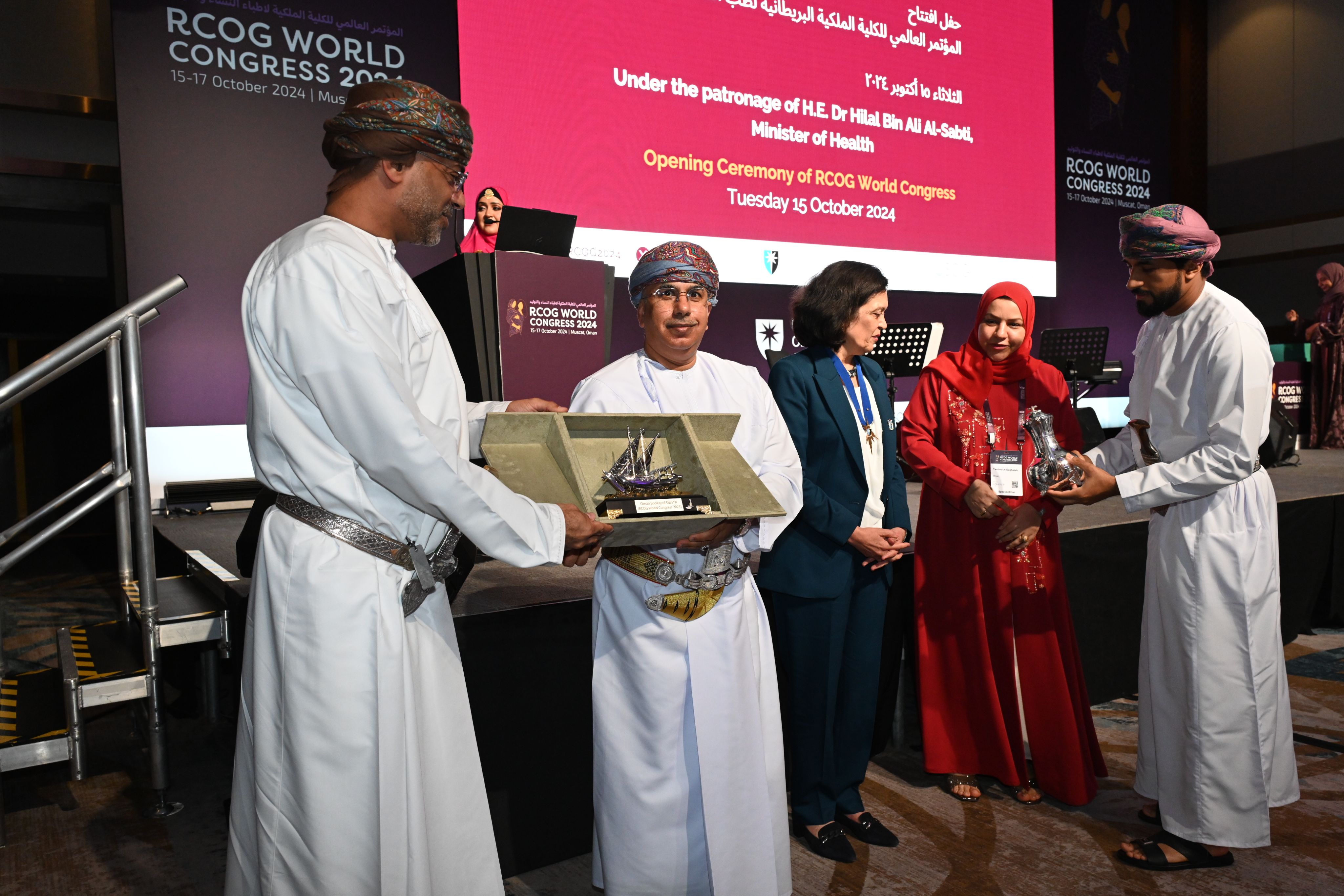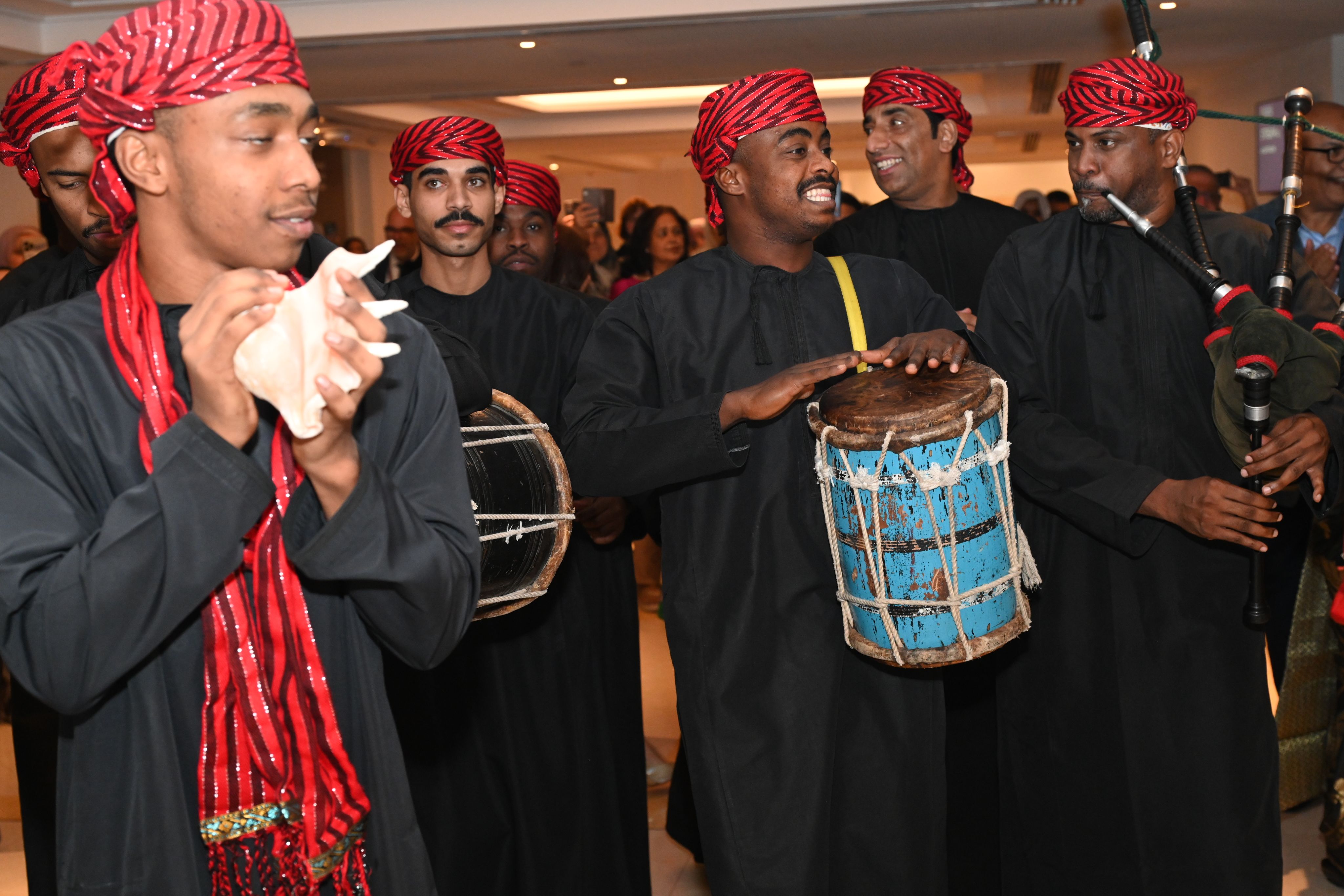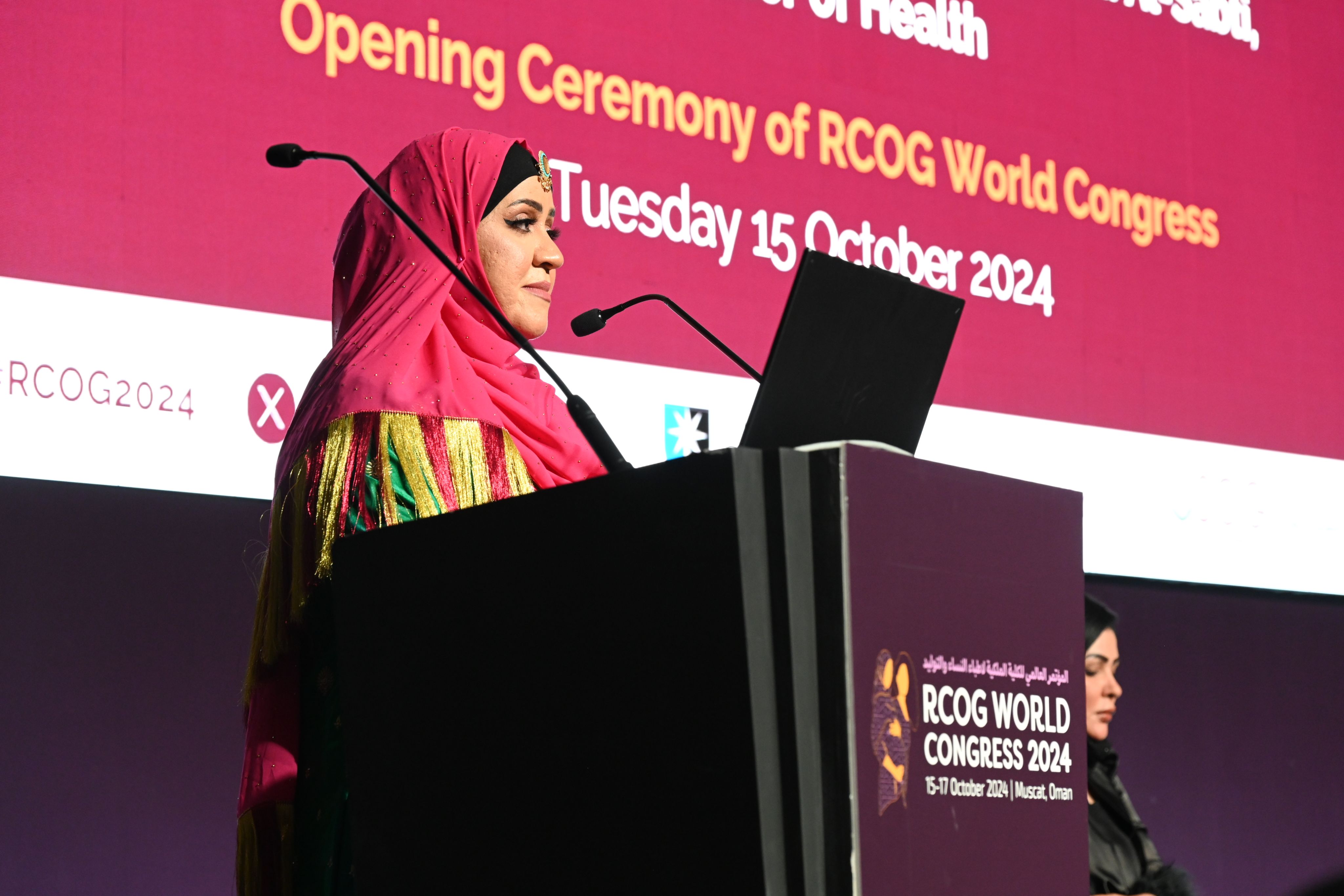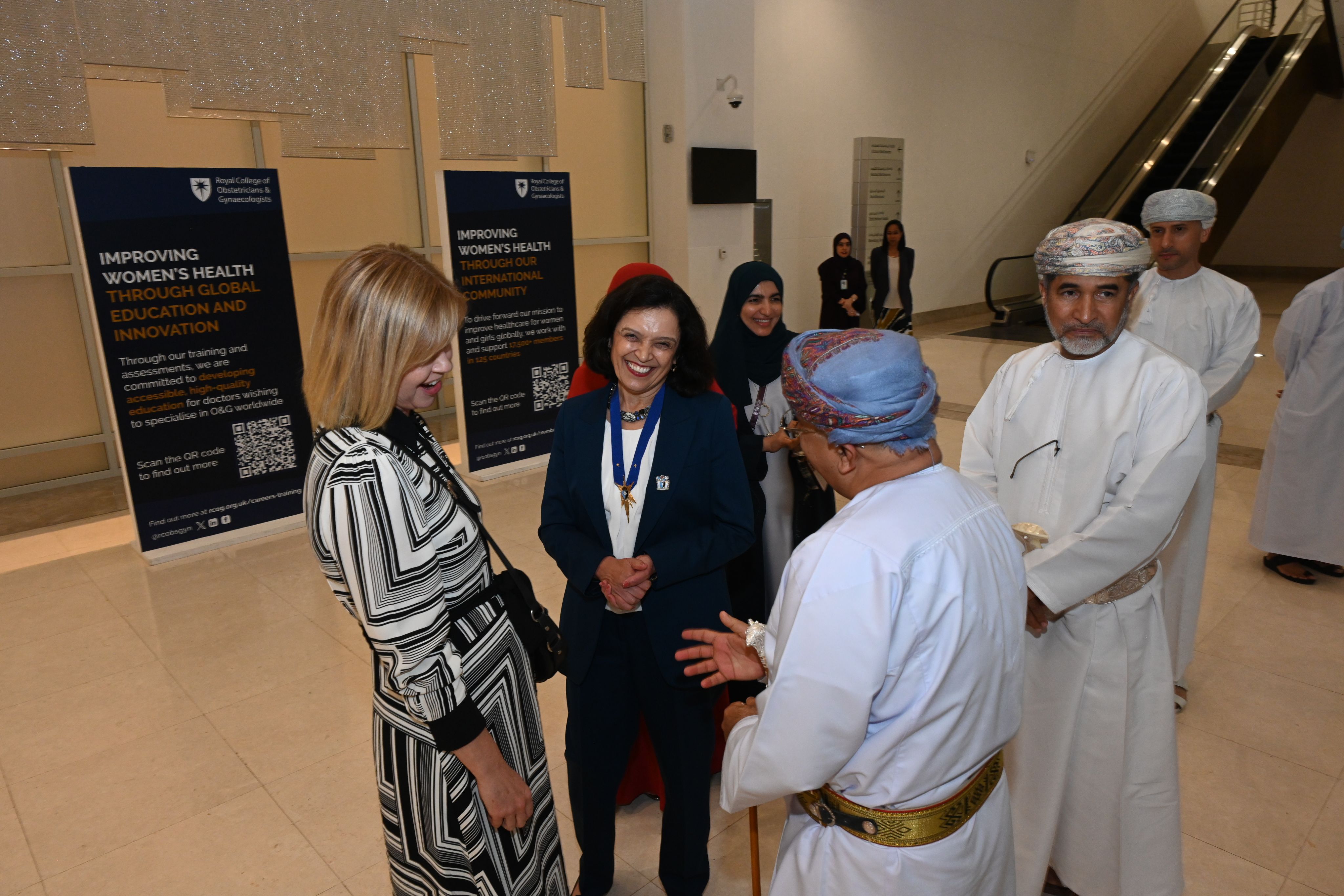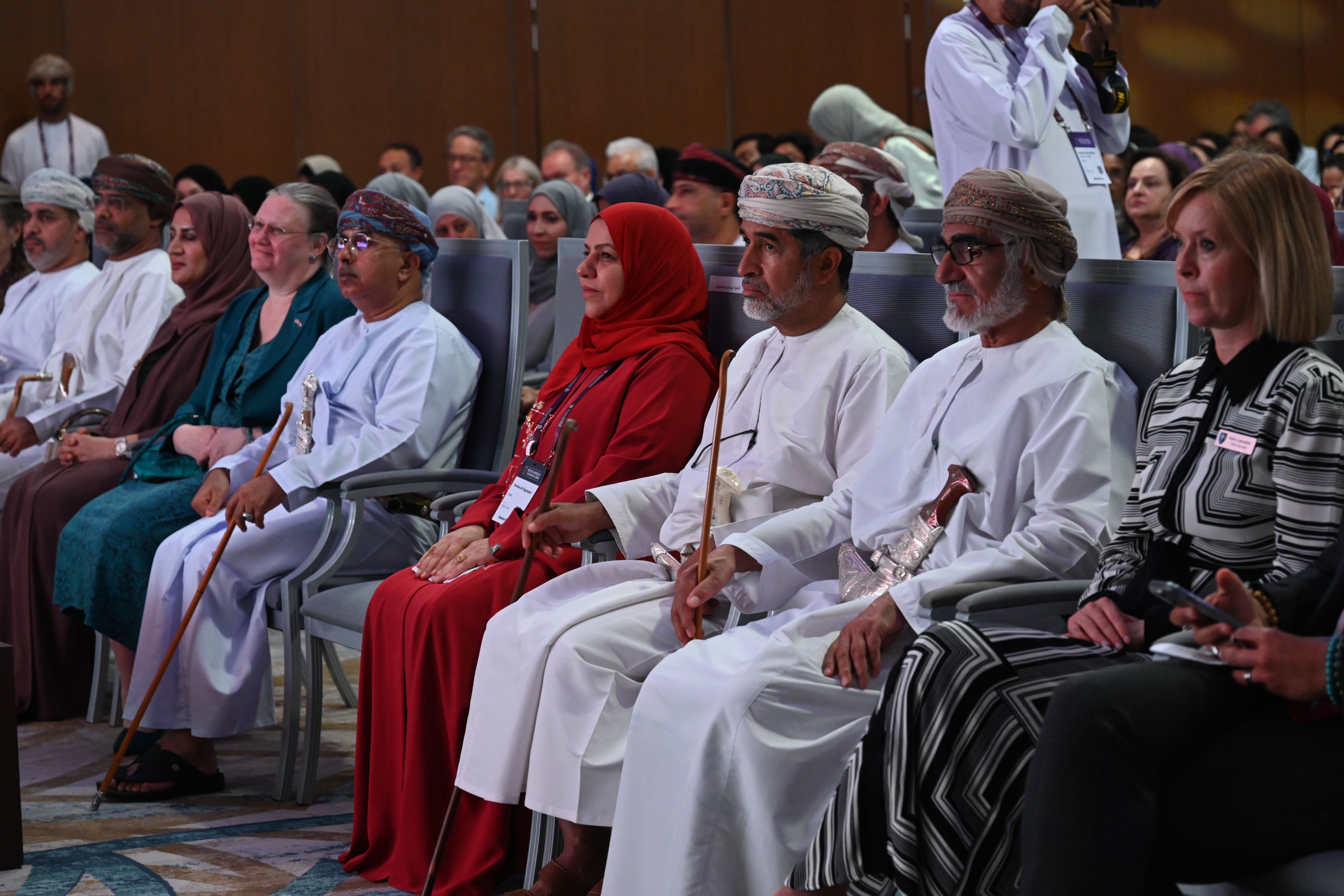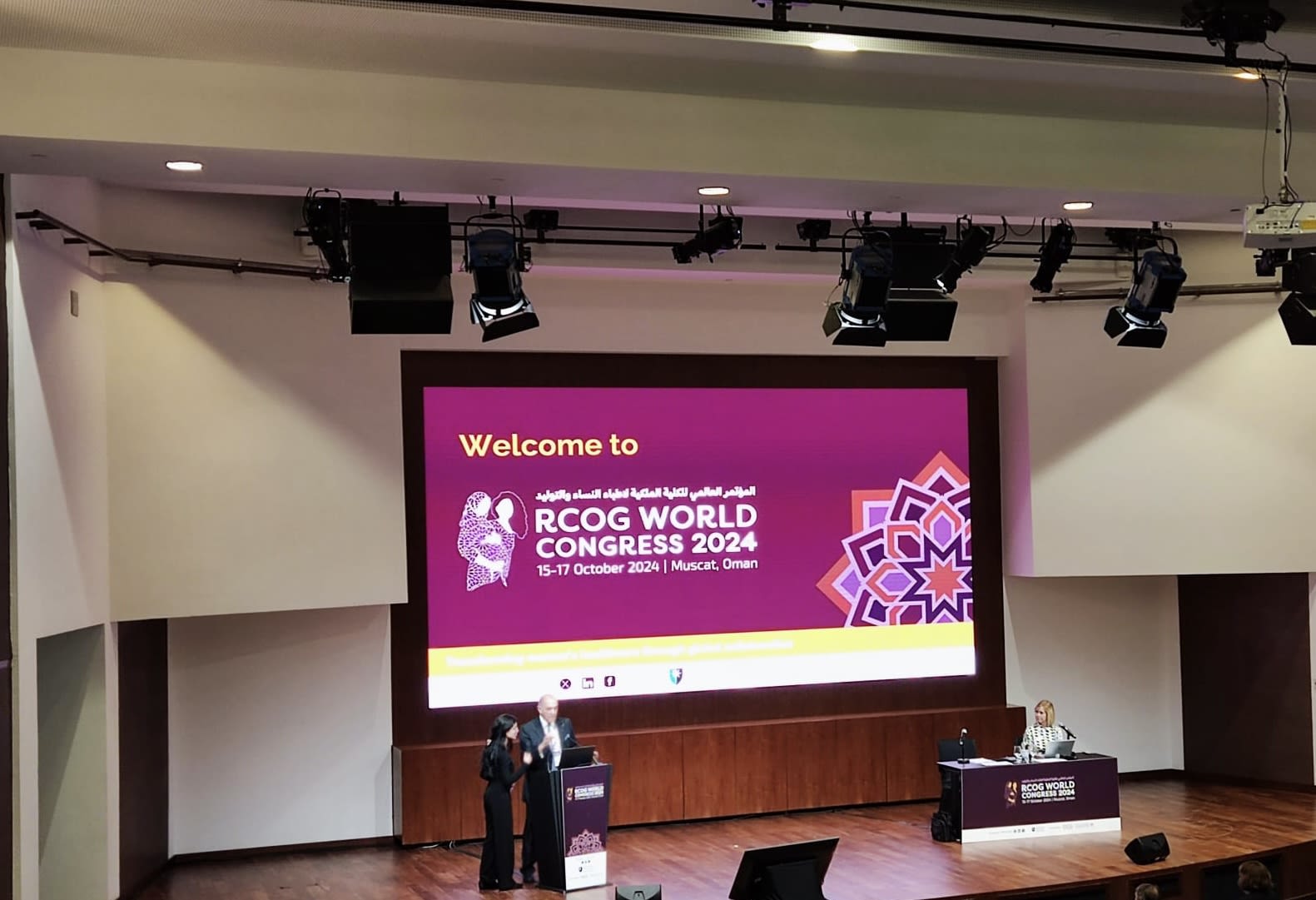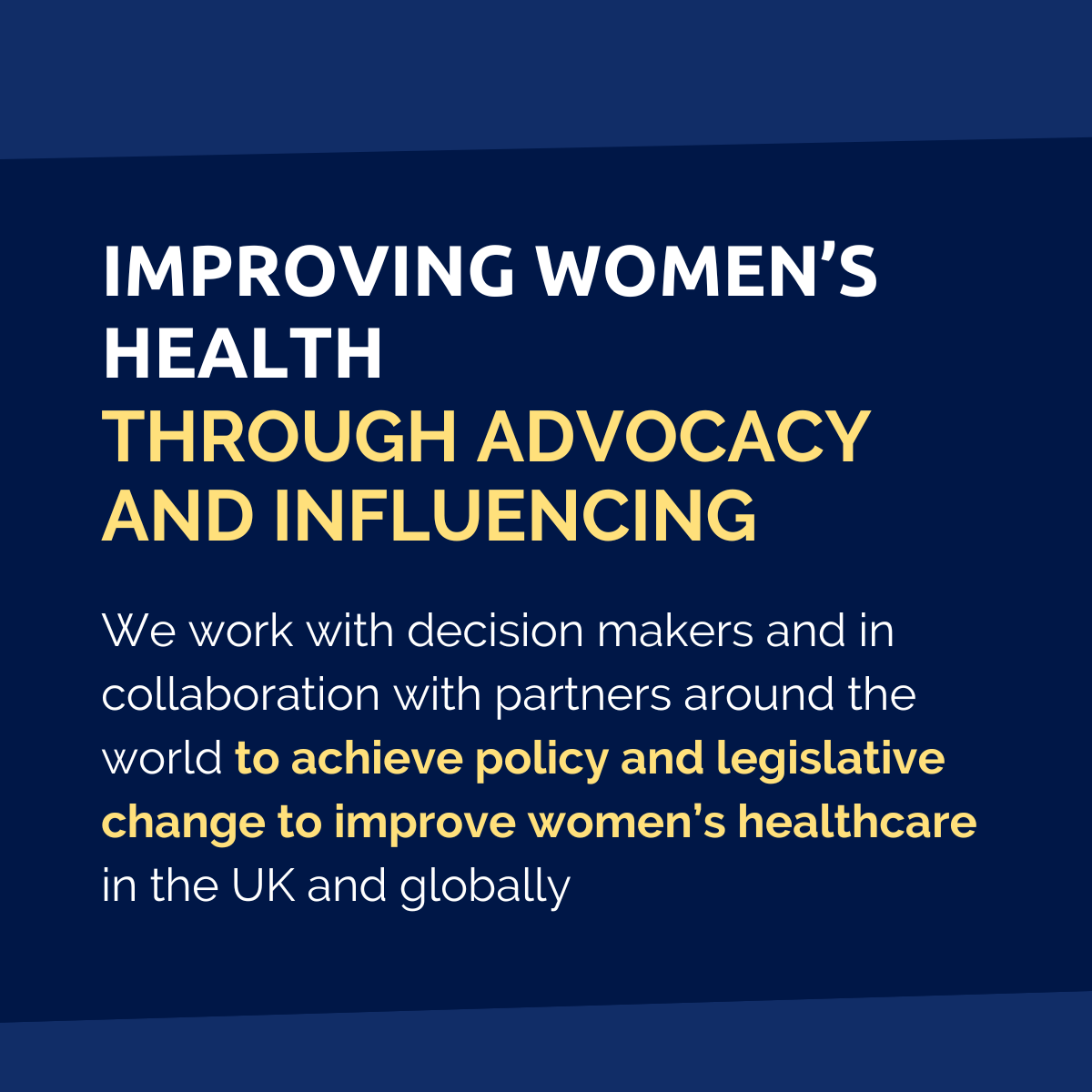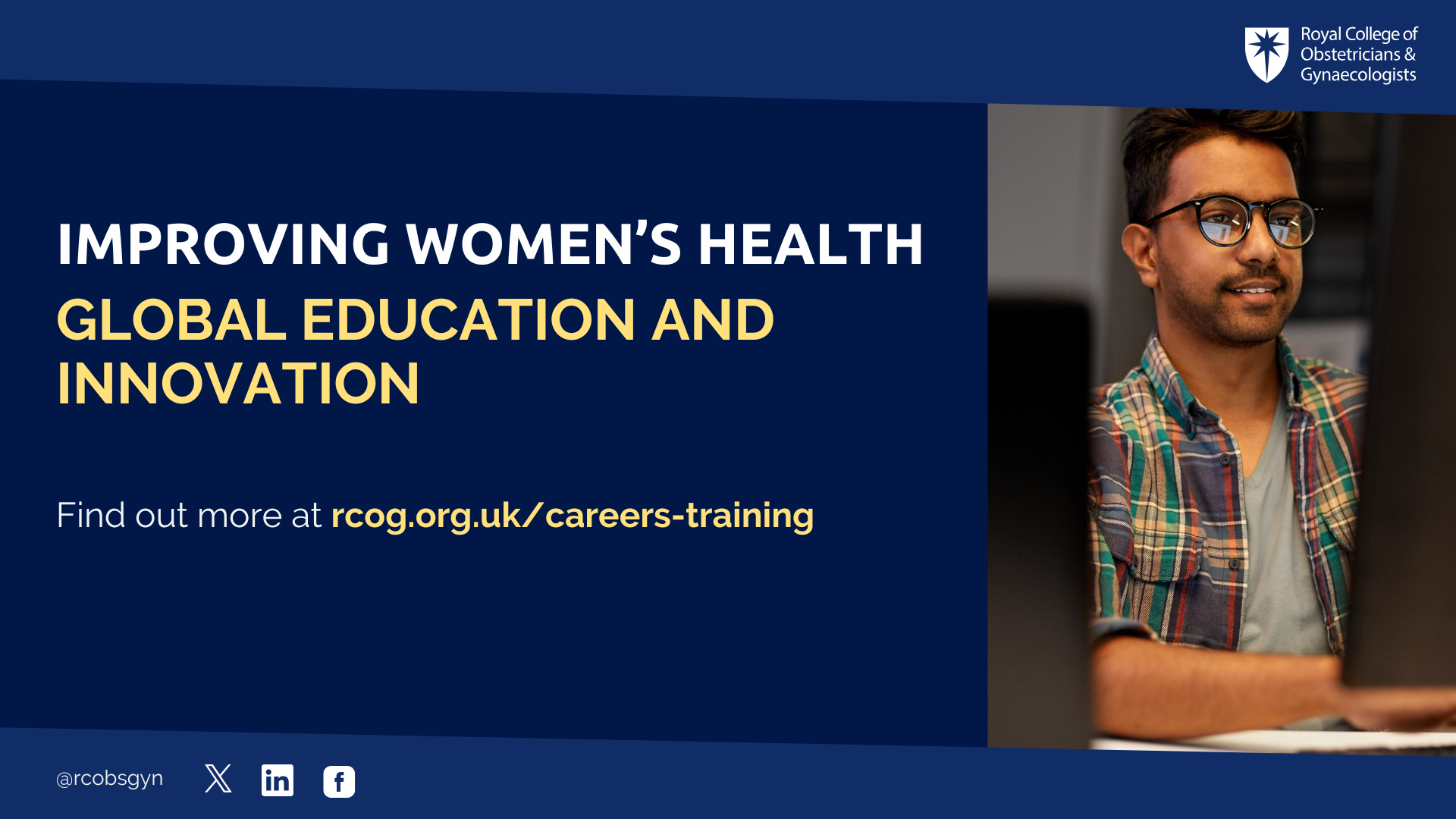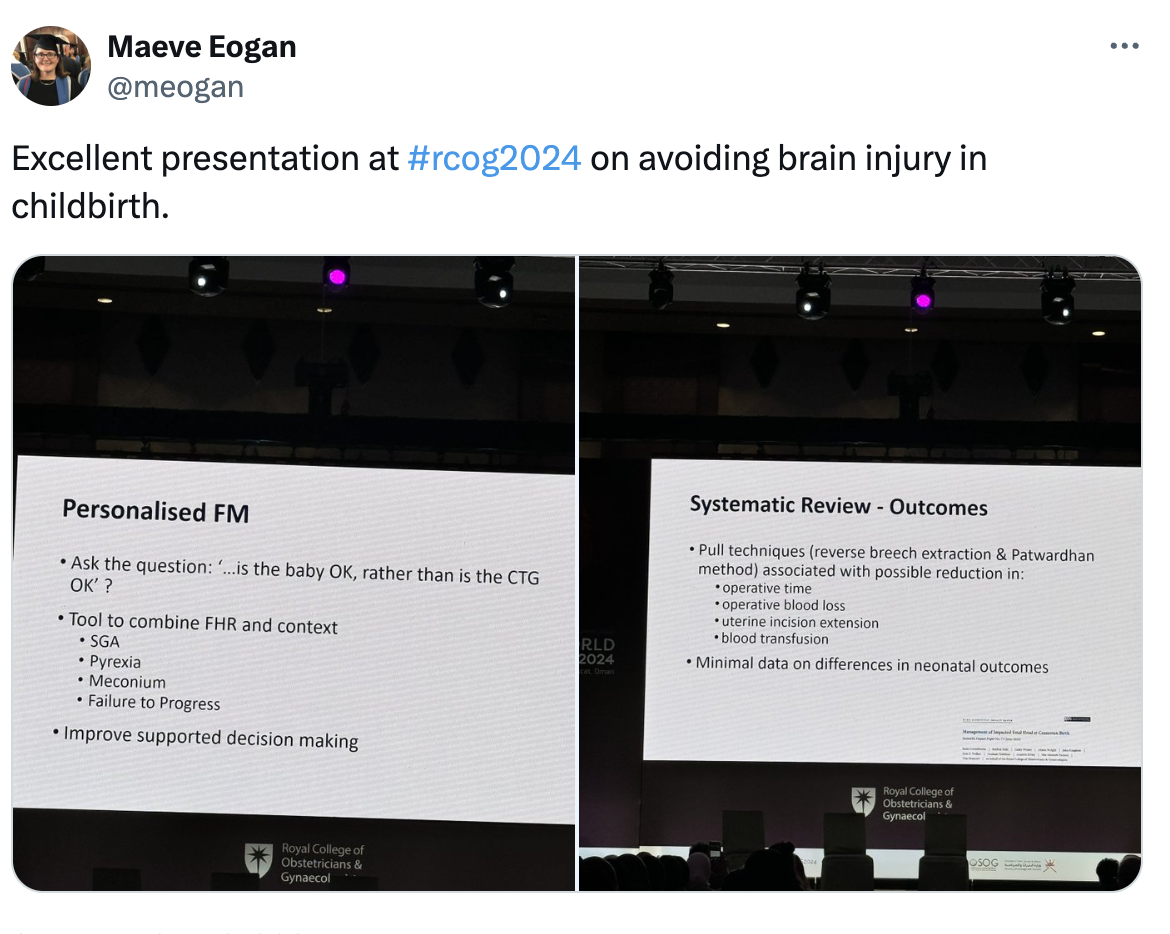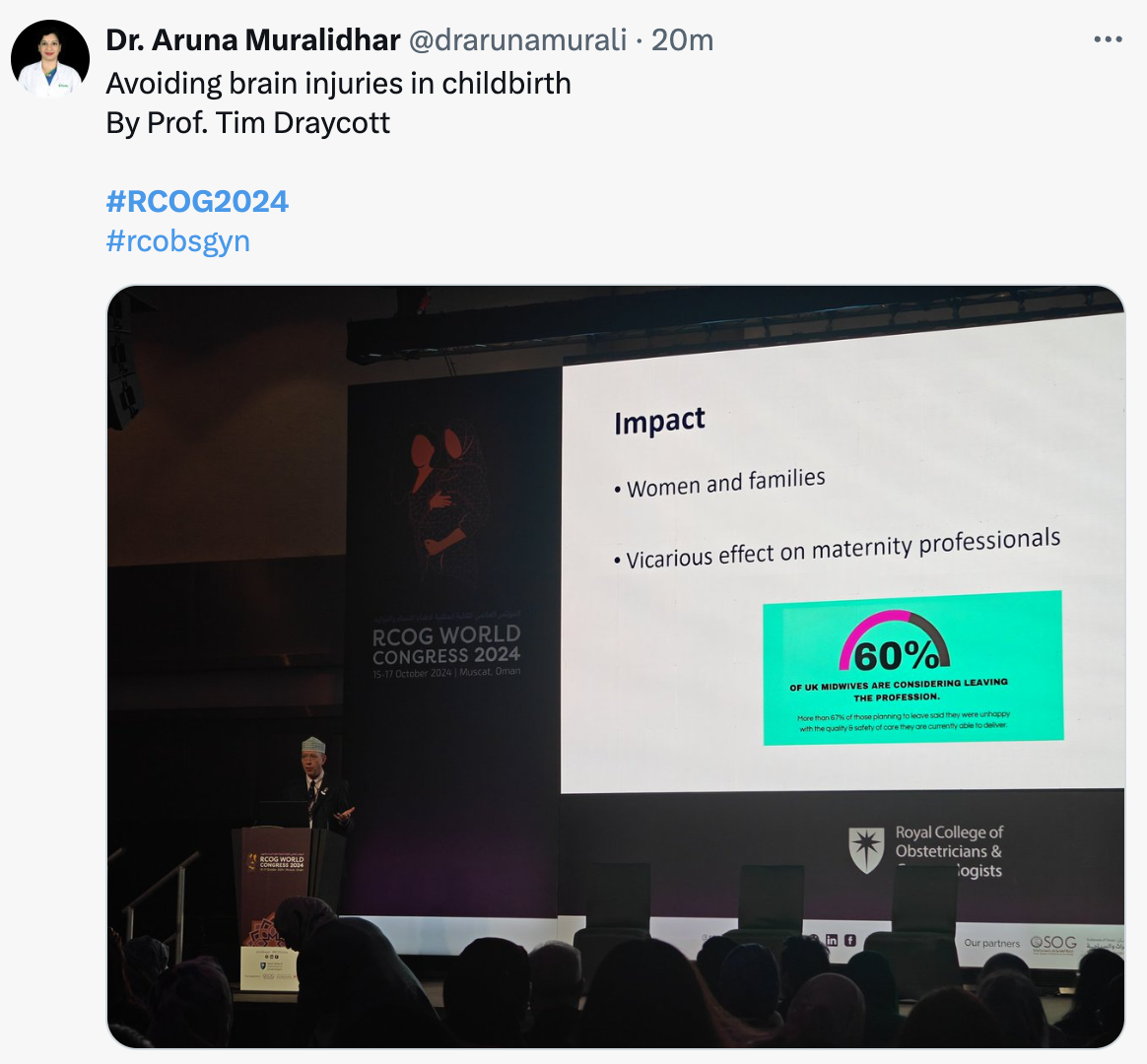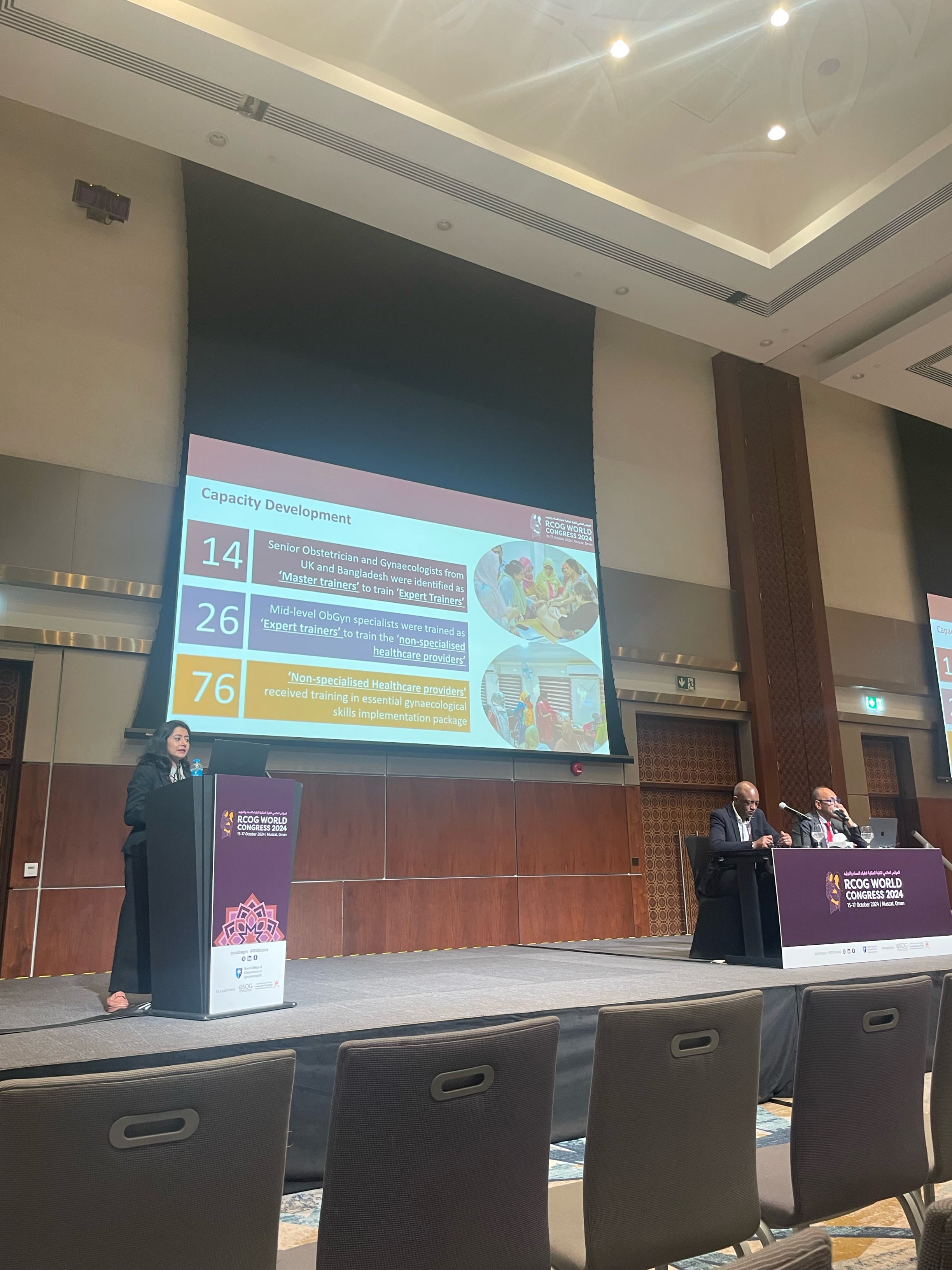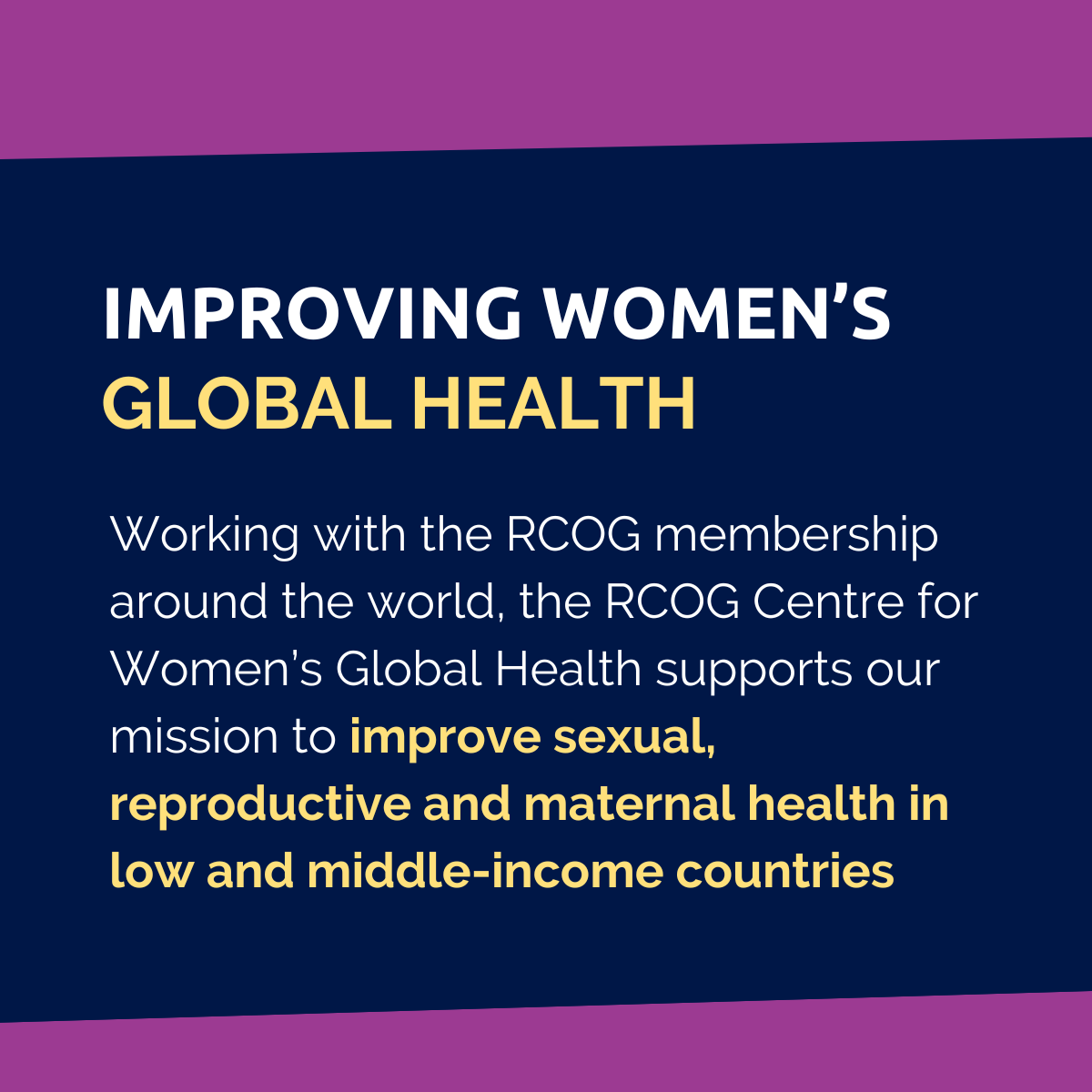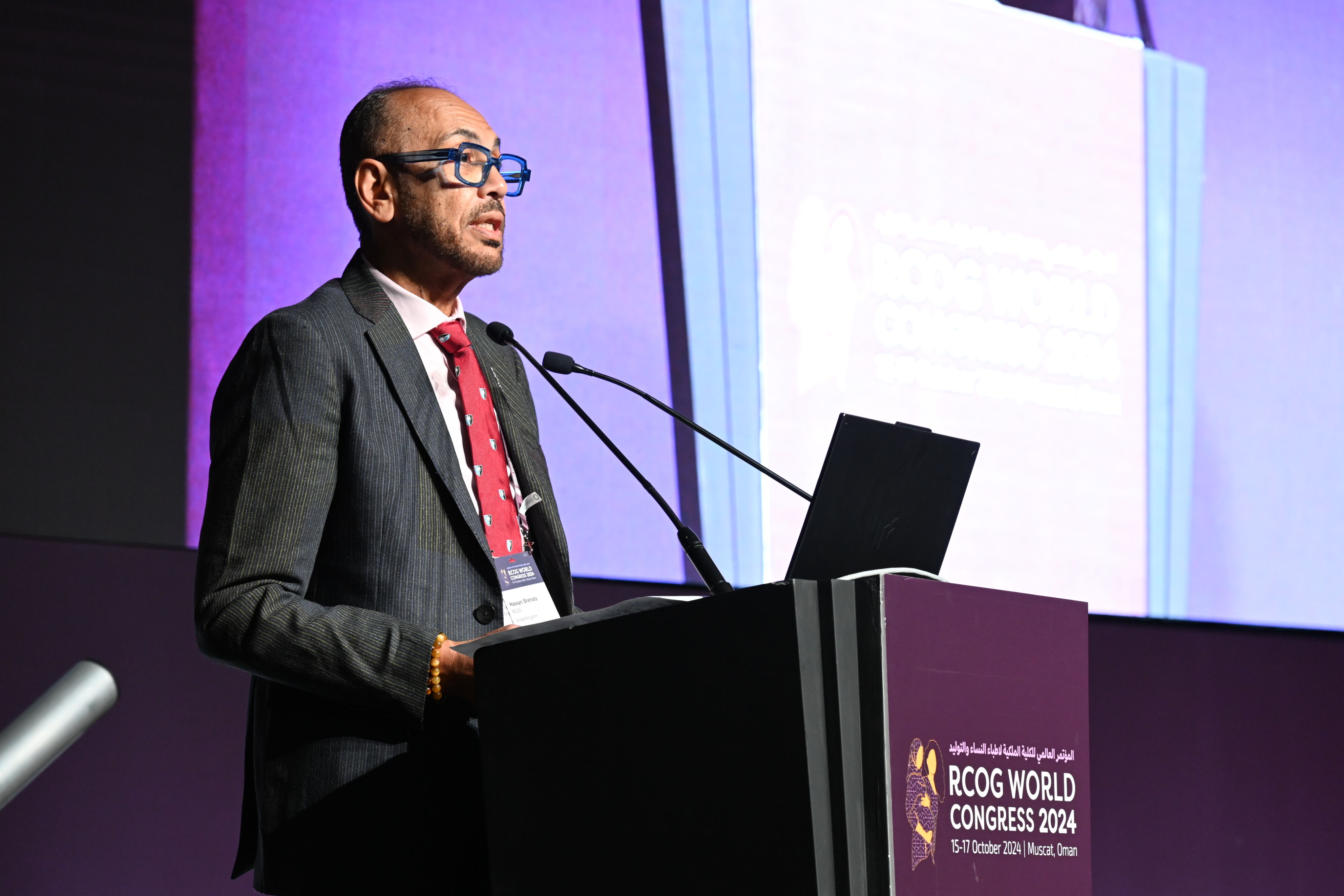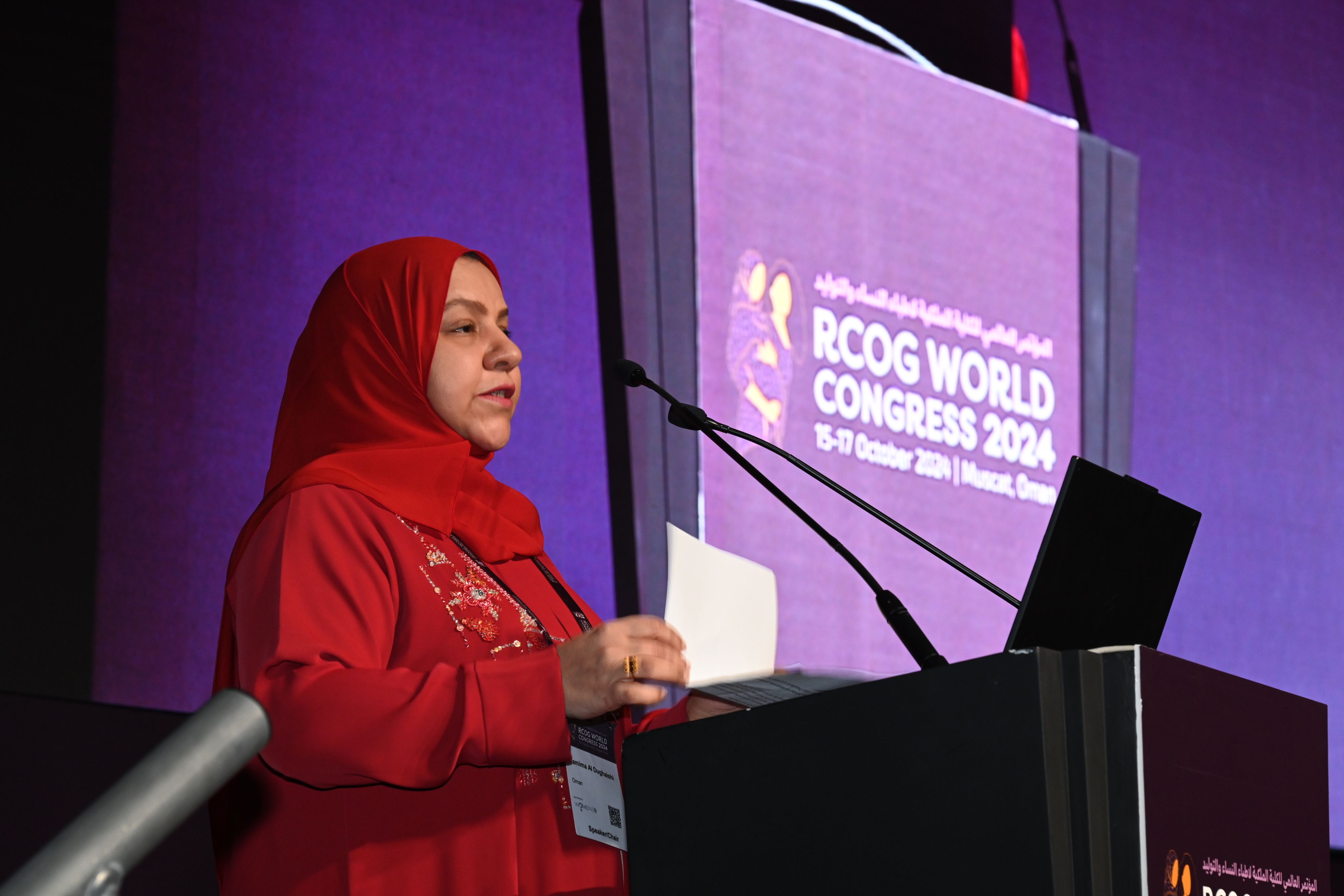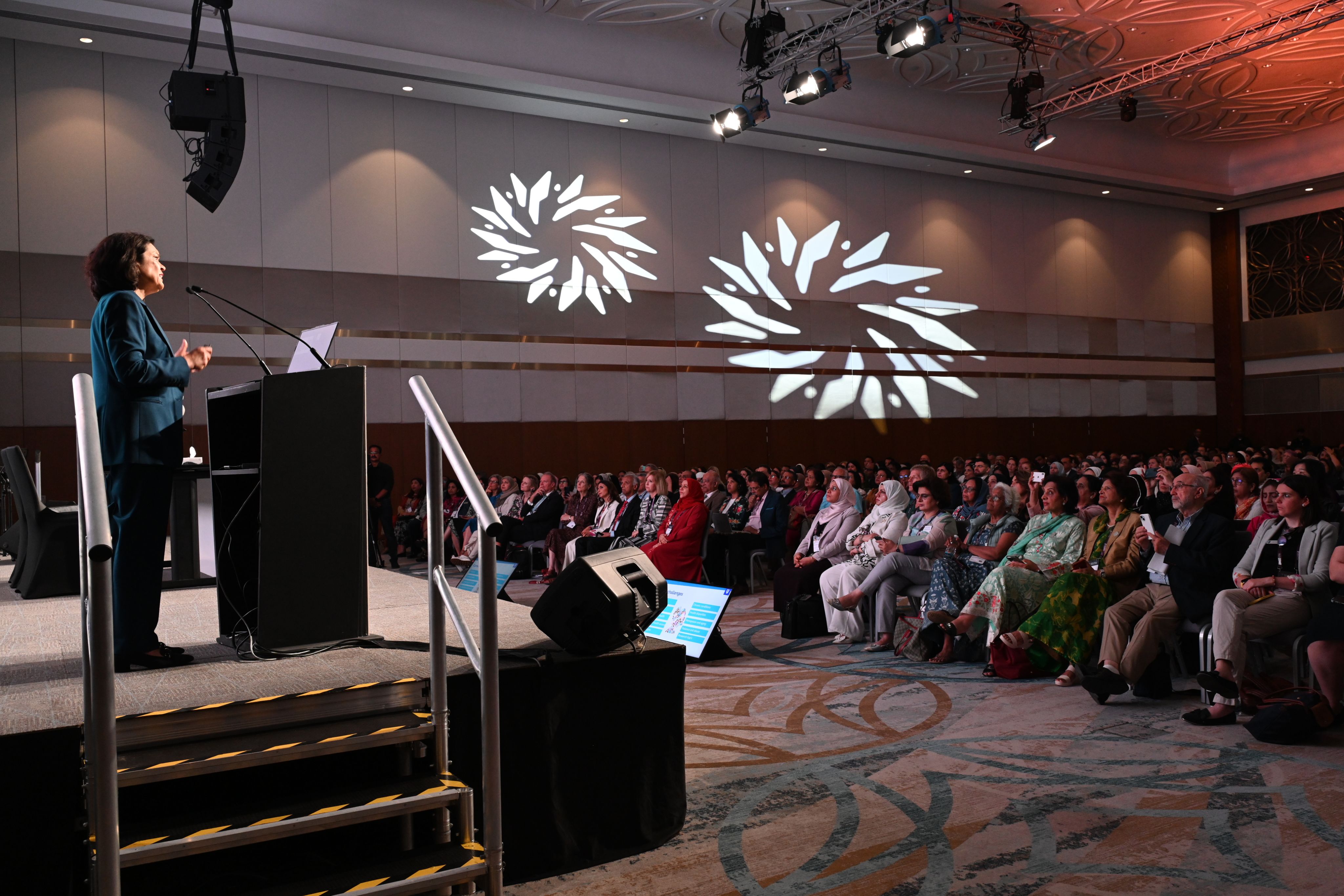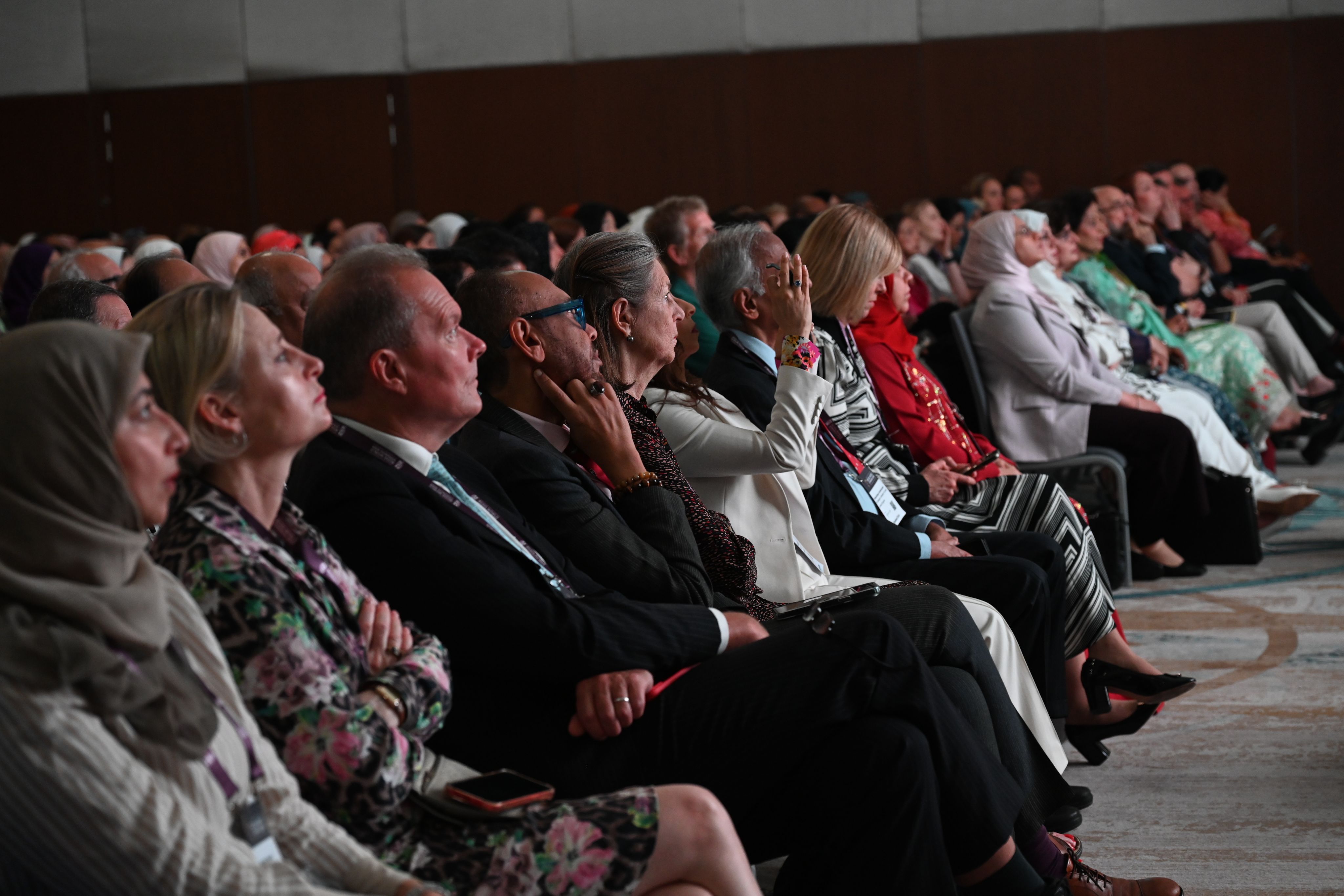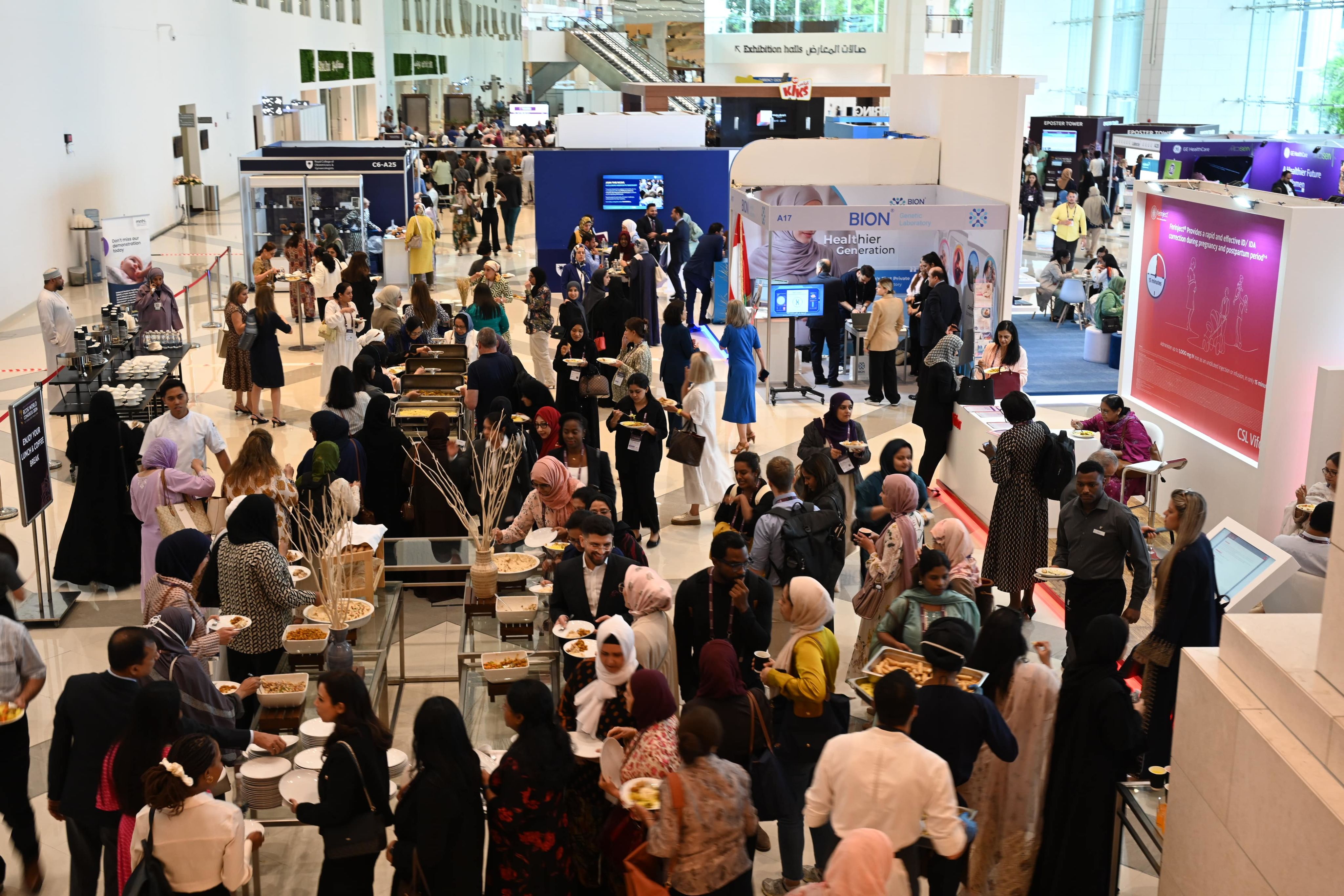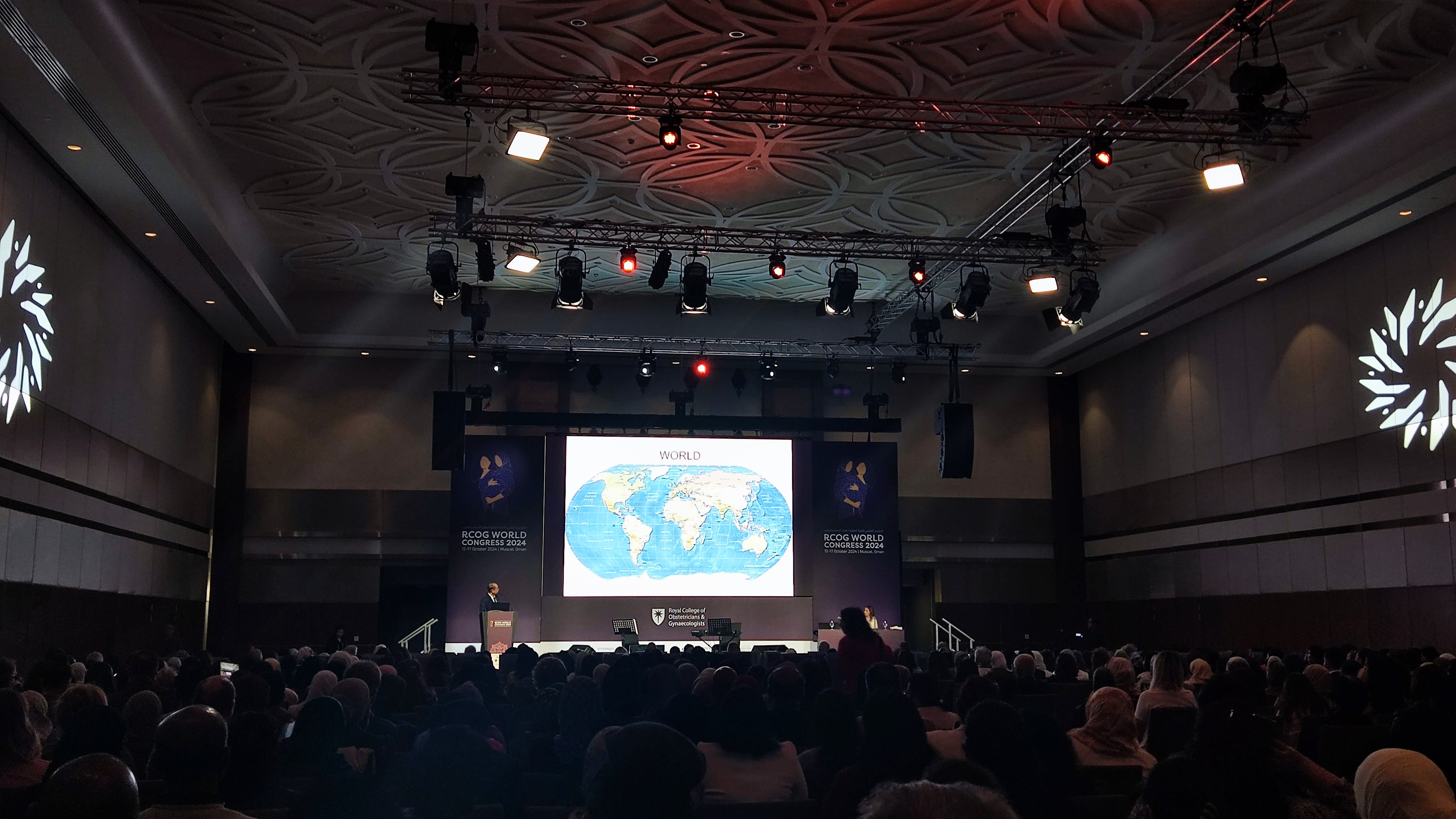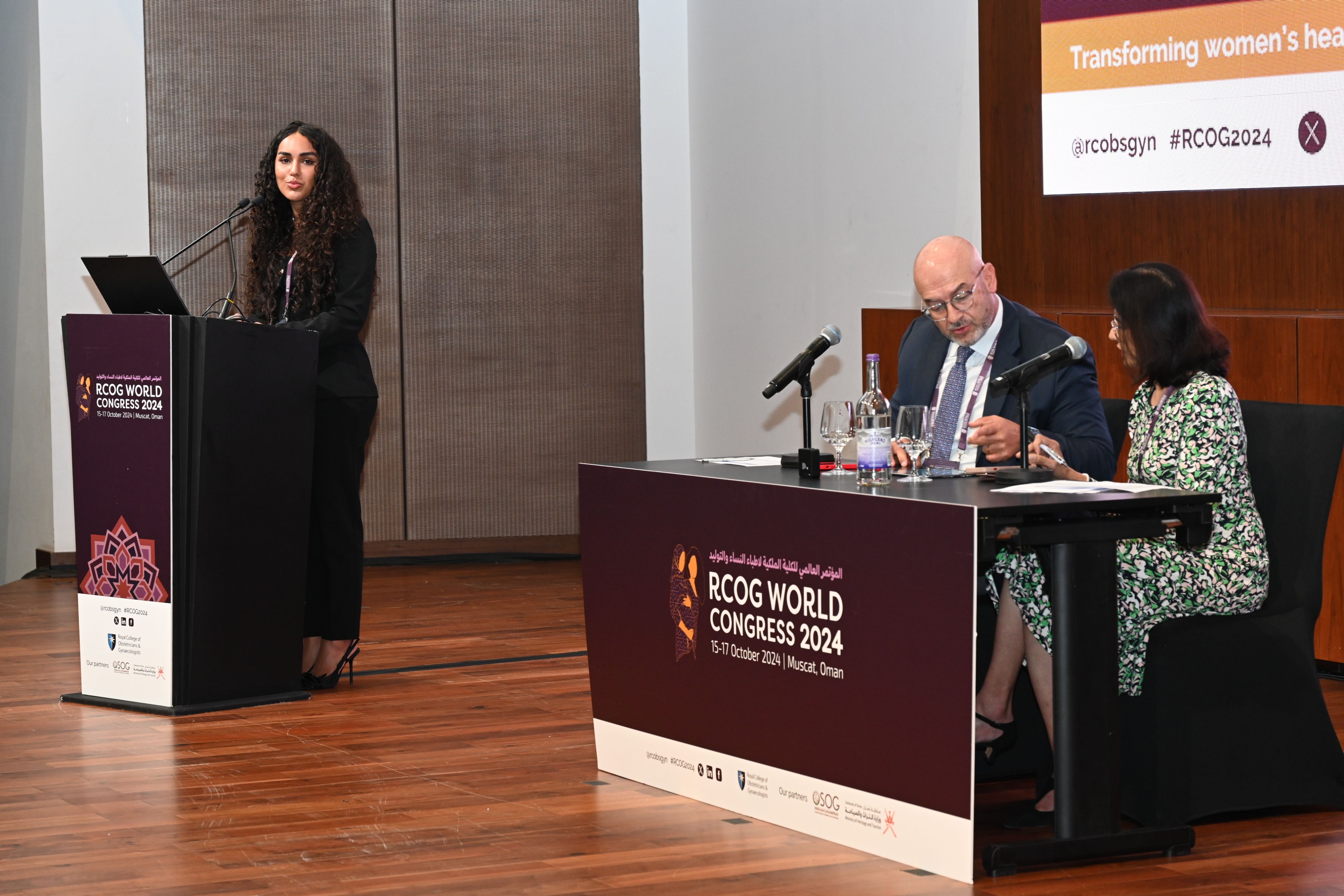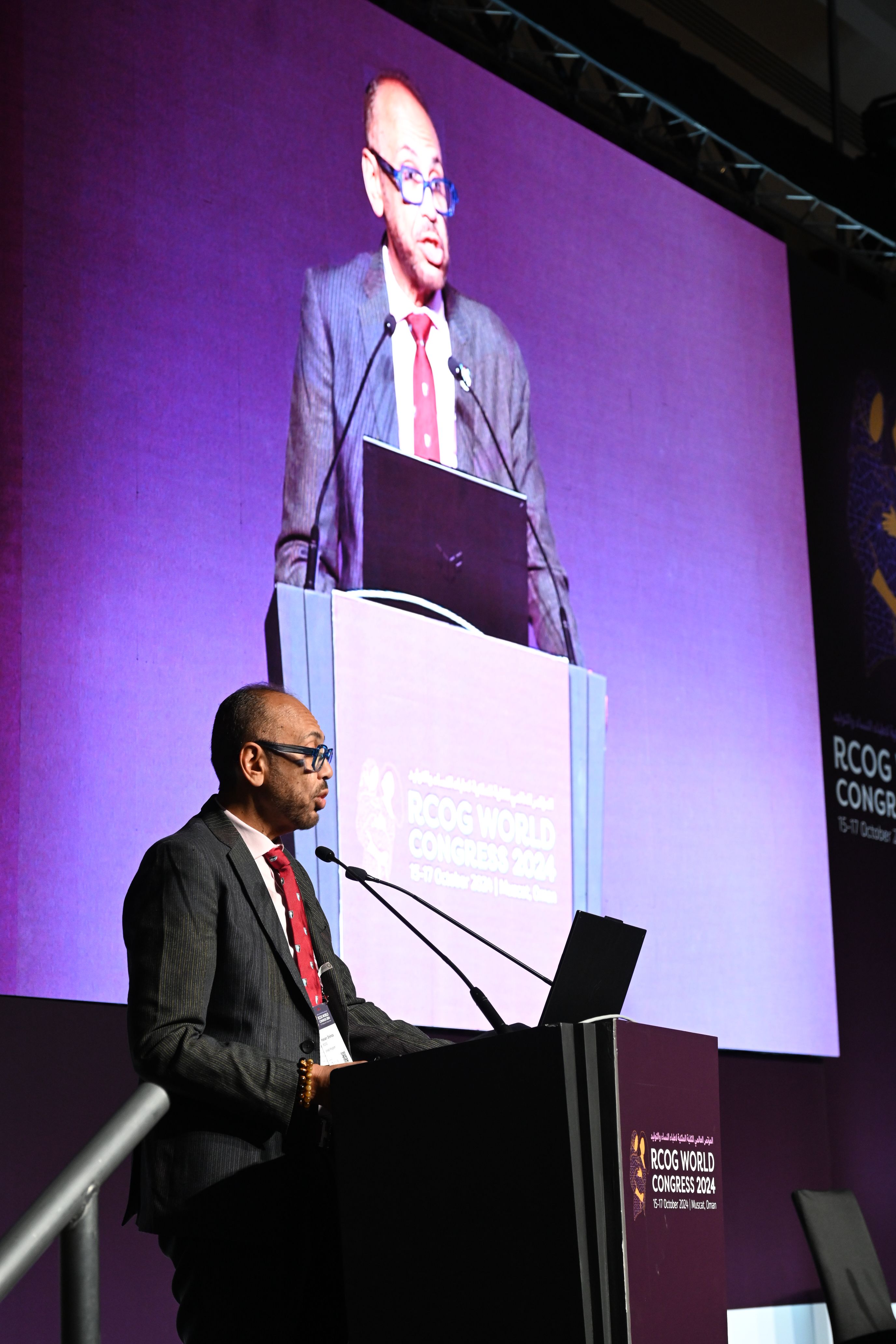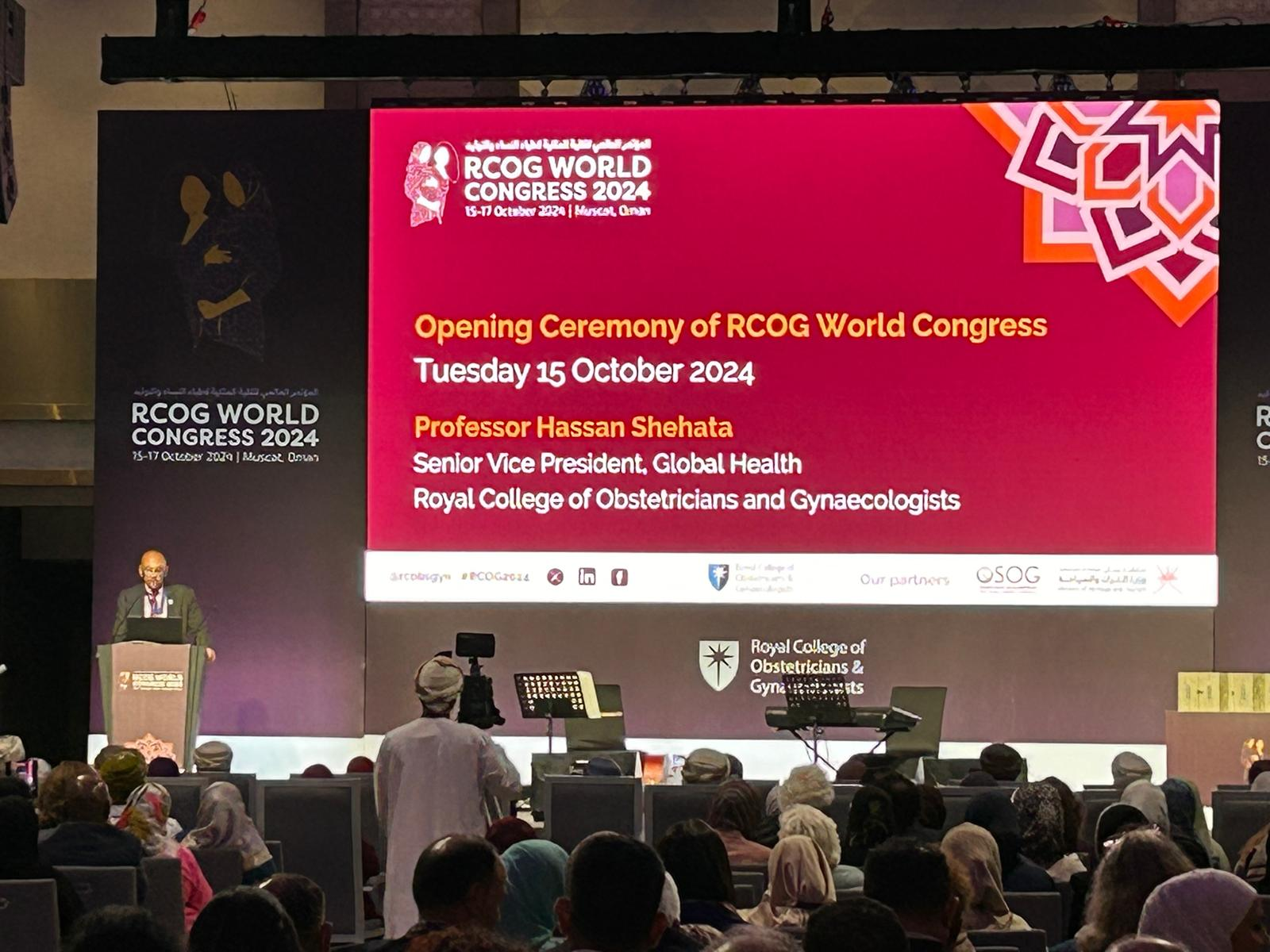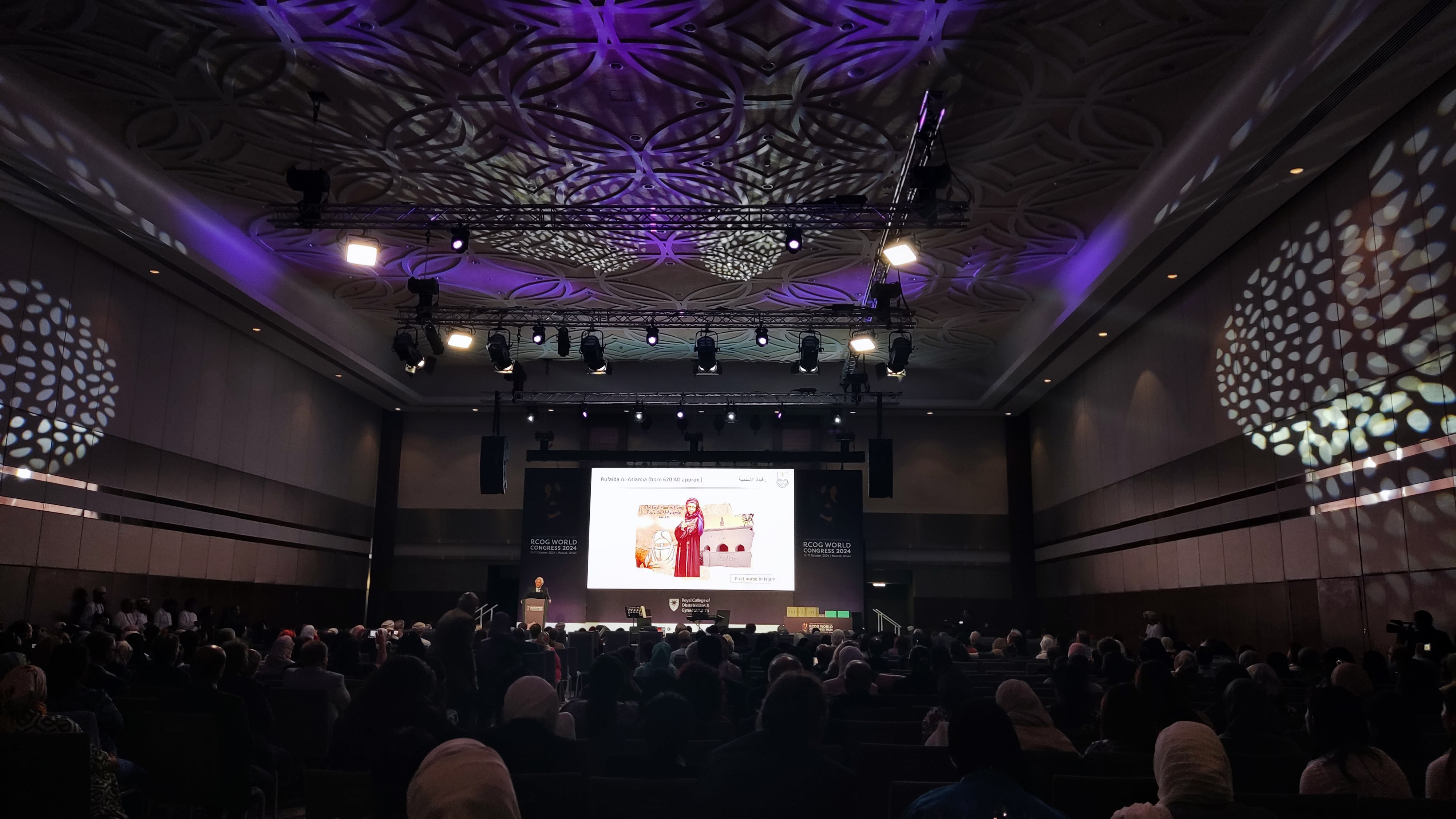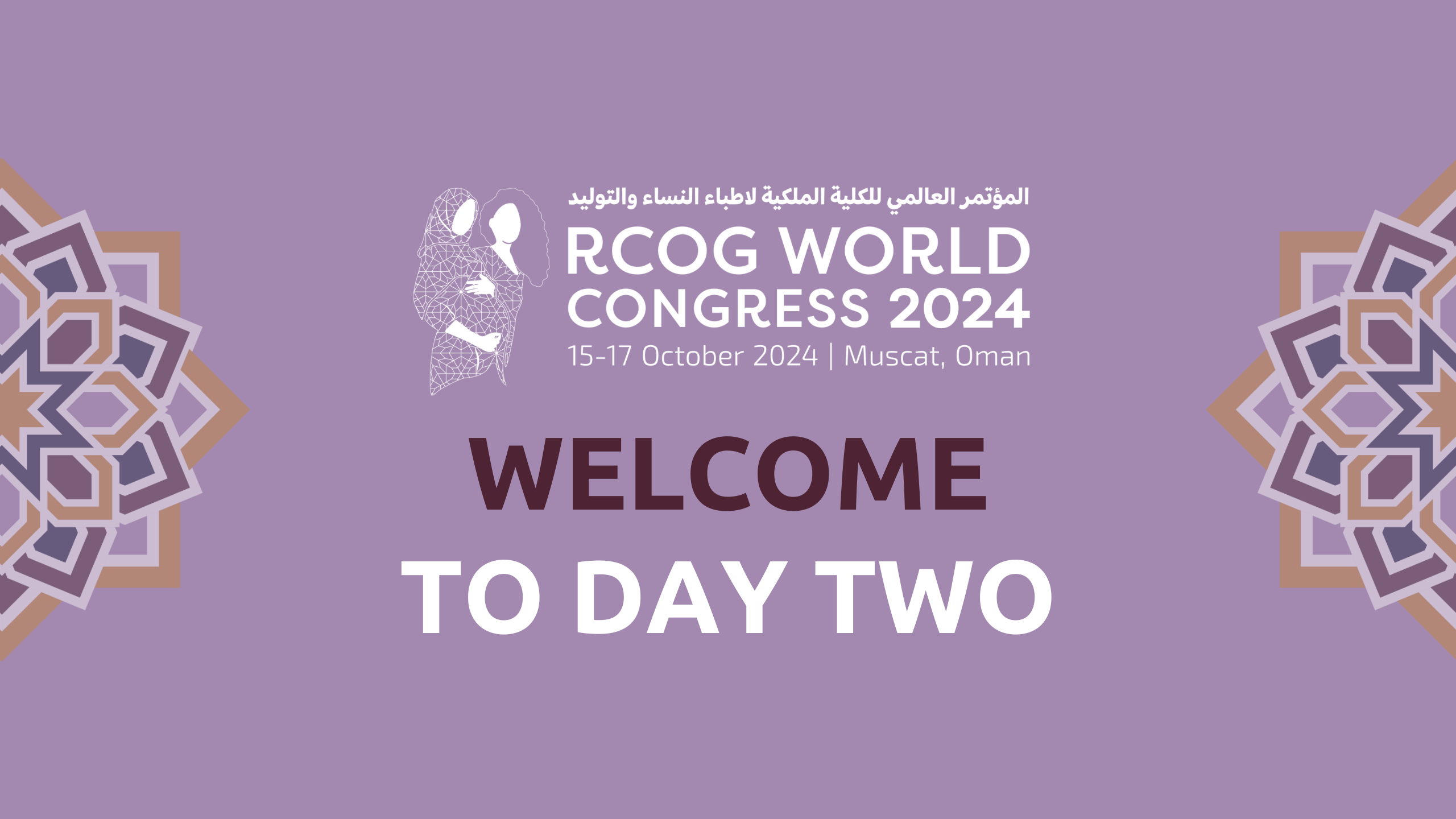
Refresh this page frequently to ensure you keep updated with the latest information.
Welcome to day two of RCOG World Congress 2024!
Here on our live Congress blog, we will keep you up to date with ground-breaking talks, thought-provoking debates and innovation in research.
Don't forget to share your highlights from Congress on social media using #RCOG2024!
Catch up on day one here.
It’s been another brilliant day at RCOG World Congress 2024, with more updates from global experts across the specialty.
In this video, delegates tells us what they have enjoyed about day two. We're looking forward to welcoming everyone back tomorrow for the third and final day!
Dr Carol Dzorani, a fourth-year O&G resident from Malawi, highlights the importance of showcasing the work being done, challenges faced and the potential to improve care for women.
Dr Dzorani encourages others not to underestimate their research, emphasising that every contribution matters and can offer valuable lessons. She stresses the importance of writing up research, as it allows others to learn from successes and mistakes. "There’s space for everyone," she says, urging all to get involved.
Our afternoon sessions are well under way covering topics including maternal medicine, general gynaecology and research.
In the final session of the day, Professor Oona Campbell will discuss strategies to reduce maternal and neonatal mortality rates. With her extensive global experience, Professor Campbell is presenting a data-driven transition framework to assess and improve strategies for meeting SDG 2030 targets.
Find out more about the RCOG’s work in maternity safety here.
Meanwhile, in the stream on optimising women’s safety, Dr Laura Hipple, RCOG Vice President for Membership and Workforce is delivering a talk on the importance of good workforce behaviours in O&G, and what the College is doing in this area.
The RCOG is committed to improving the workplace for the benefit of both staff and the women and families we care for. To support our members and the wider O&G workforce, we have produced a range of resources to improve workplace behaviours.
This includes our Workforce Behaviour Toolkit, developed in collaboration with the Royal College of Midwives, Civility Saves Lives and Royal College of Surgeons of Edinburgh. Access the toolkit here.
Honorary RCOG Fellow Jane Plumb is CEO of UK charity Group B Strep Support and Women’s Voices Lead at the RCOG is presenting 'From Womb to world: Amplifying women’s and service users voices in O&G'. Chairing this session with Geeta Kumar , Vice President for Clinical Quality.
Jane highlights how the RCOG has positively changed key aspects of its work to further include lay people.
Examples include:
- 50 lay people trained as lay examiners, meaning the MRCOG part 3 is more realistic and includes women’s perspectives.
- Exams and assessment committee has a RCOG Women’s Network member, and the part 3 sub committee has 4 lay members
- Heavily involved in the production of the Group B strep patient information
- Supported the collaboration and consultation to deliver diverse insights on the COVID-19 guidance production, with regular updates
- Women’s Network members worked closely with the RCOG to develop an internal language guide to ensure communications were consistent, clear, fair and inclusive.
Jane urged the audience to take three steps to increase their user involvement:
Co-design: Involve women in designing O&G guidance, information and services
Reflect: Consider how user involvement can improve your practice
Reach out: Contact womensvoices@rcog.org.uk for support.
The RCOG champions the best in women’s healthcare and supports doctors so that they’re equipped to do the best job possible for women. Our Women’s Network aims to ensure women are at the heart of everything the College does.Find out more about the RCOG Women’s Network and Women’s Voices Panel here
After lunch, the afternoon sessions resume with a plenary session – a roundtable discussion on empowering women's health and overcoming challenges in resource-limited settings. We are hearing from African, Middle East and Asian clinicians before a general discussion and Q&A.
Chaired by Professor Marwan Alhalabi from Damascus University, other speakers include Professor Hadiza Galadani, Professor Taghreed Alhaidari and Professor Shakila Thangaratinam.
Topics covered include prioritising women's and girls' health challenges like financial constraints, inadequate infrastructure, cultural barriers, and educational gaps. These limited resources hinder access to crucial services, exacerbating maternal and reproductive health risks. Addressing these issues requires targeted investments and evidence-based approaches to bridge the gaps to ensure comprehensive women's health in resource-constrained environments.
It's lunch here in Muscat. On day one of #RCOG2024 we enjoyed a special opening ceremony attended by representatives from the Omani Ministry of Health, as well as our event partners at the Omani Ministry of Heritage and Tourism and the Omani Society of Obstetrics and Gynaecology (OSOG).
We spoke to The Society of Obstetricians and Gynaecologists of Canada (SOGC) CEO, Dr Diane Francoeur, about her Congress experience:
Our morning sessions continue covering topics including urogynaecology, sustainability and climate change and clinical genetics
The sustainability and climate change stream is being chaired by RCOG CEO Kate Lancaster and Dr Ali Kubba.
Dr Kubba told the audience how clinicians can make positive steps to reduce their carbon footprint and improve women’s health using the 4Ps:
1.Personal
- Reduce your carbon footprint and encourage others to do so
2.Professional
- Lean service - streamlining care to minimise wasteful practice
- Patient self care
- Low carbon alternatives
3. Pathway specific activities
- Go paperless
- Utilise new technologies
- Avoid over prescribing
4.Policy level activities
- Reduce travel
- Support staff car pooling
- Online prescribing
Professor Eric Jauniaux talked about air pollution and adverse effects on pregnancy outcomes, whilst Jane Hirst discussed climate change, ambient temperature and the effects of heat stress during pregnancy.
You can read Eric Jauniaux’s research on air pollution in a special themed BJOG issue on women’s reproductive health and the environment, published earlier this year. Access the article and other work here.
In the gynae-oncology stream, Miss Eman Toeima, senior SAS doctor at Lewisham and Greenwich NHS Trust, is discussing the challenges of diagnosing and managing vulval diseases across all age groups. She highlights the importance of balancing prevention and early detection, and the impact of these conditions on patients' lives.
Through our training and assessments, the RCOG is committed to developing the accessibility and quality of education for doctors wishing to specialise in O&G worldwide.
As well as pushing advancements in women’s healthcare globally through our online MRCOG exams, we offer a range of training events and resources accessible to clinicians across the world, supporting our members’ lifelong learning and development. Find out more here.
Our morning sessions are underway covering topics including labour ward management, women's rights in a changing world and imaging in gynaecology.
In the quality improvement and training session, Dr Geeta Kumar, RCOG Vice President for Clinical Quality, discussed the importance of decision making and informed consent in healthcare. Decision making and informed consent involves assessment of all available treatment options including no treatment, assessing the benefits and risks of each option and selecting a suitable option for the individual patient.
To support our members in this area, the College produces a range of consent advice. These documents aim to ensure that all patients are given consistent and adequate consent information. Explore our advice here.
Elsewhere, we heard from associate professor Rhea Liang, who reviewed the current concepts of burnout, which are evolving rapidly in parallel with developments in human factors and systems theory, and some of the solutions new understandings suggest.
In the labour ward management stream, Professor Tim Draycott is providing an update on the Avoiding Brain Injuries in Childbirth (ABC) collaboration between the RCOG, RCM and THIS Institute.
We recently announced that the latest phase of the ABC programme has been launched, to improve and personalise maternity care and reduce the risk of two significant contributors to avoidable brain injury in childbirth, which can have a devastating impact on babies and families.
In the endometriosis and uterine disorders stream, consultant gynaecologist Miss Melanie Tipples shares her experience setting up a day-case hysterectomy service. Melanie developed the gynaecology minimal access service and established a laparoscopic hysterectomy service at her hospital, which received an outstanding rating from the UK Care Quality Commission. Her service is now being rolled out across the University of Sussex Hospital Trust and she provided guidance for implementing similar services.
Yesterday evening, RCOG Senior Vice President, Global Health, Professor Hassan Shehata, and President of the Oman Society of Obstetrics and Gynaecology (OSOG), Dr Tamima Al Dughaishi, appeared on a live broadcast by OmanTV. The interview can be viewed in Arabic from the 21-minute mark.
Today’s programme started with our popular early riser sessions, covering topics from vascular disease in obstetrics to mental health.
In stream 3, Dr Santanu Acharya and Dr Sabrina Jabeen from the RCOG Gynaecological Health Matters programme talked about the burden of gynaecological disease, and the work the College has been doing to provide non-specialist healthcare professionals with essential gynaecological skills.
Dr Jabeen explained how the Essential Gynaecological Skills training package addressed gaps in gynaecological service delivery in Bangladesh, bringing renewed attention to previously neglected areas of women's healthcare.
Find out more about the Gynaecological Health Matters (GHM) programme.
The GHM programme is just one example of our commitment to improving women’s health. Working with the RCOG membership around the world, the RCOG Centre for Women’s Global Health supports our mission to improve sexual, reproductive and maternal health in low and middle-income countries.
In the mental health early riser session, Dr Jenny Barber and Dr Sue Ward discussed the current concerns highlighted by maternity investigations in the UK and feedback from trainees which suggest that there is a problem with working relationships on labour wards. They then addressed potential solutions to promote compassionate cultures in the obstetric working environment and support the mental health and wellbeing of staff.
To promote good workplace behaviour in O&G, we co-developed the Workplace Behaviour Toolkit.
Mr Sanjay Rao a consultant at the James Cook University Hospital, UK is talking about the popular RCOG MTI programme, a highly sought unique global opportunity for international doctors aspiring to gain invaluable experience in the NHS and achieve successful completion of the MRCOG.
His presentation provides an overview of the application process, its objectives and philanthropic vision. It is a quality assured process led by the RCOG for doctors to accrue holistic UK based experience in O&G and hone skills at the level of a junior registrar with deeper insight of clinical care based upon the principles of patient safety, clinical governance, shared decision making. Find out more about the programme here.
Day one highlights
On day one of Congress, we started with OSOG President Dr Tamima Al Dughaishi and Senior and RCOG Global Health Vice President Day Professor Hassan Shehata and a keynote speech with RCOG President Ms Ranee Thakar.
The rest of the day was packed with the latest updates in O&G from expert speakers including:
- Professor Asma Khalil, RCOG Vice President for Academia and Strategy, presenting on strategies to reduce stillbirth in twins versus singletons
- RCOG Council and Congress Committee member Mr Dudley Robinson discussed the role of laser therapy in managing genitourinary symptoms of the menopause and stress urinary Incontinence
- A plenary session from associate Professor Mahesh Choolani on how artificial intelligence is revolutionising O&G
- RCOG Vice President for Education Ian Scudamore’s presentation on caring for pregnant women with chronic renal disorders
After the scientific programme, we enjoyed a special opening ceremony attended by representatives from the Omani Ministry of Health, our event partners at the Omani Ministry of Heritage and Tourism and the Omani Society of Obstetrics and Gynaecology (OSOG) and the British Ambassador for Oman.
At the ceremony, RCOG Fellow Professor Hassan Shallam delivered a fascinating talk on the legacy of Middle Eastern medicine.
